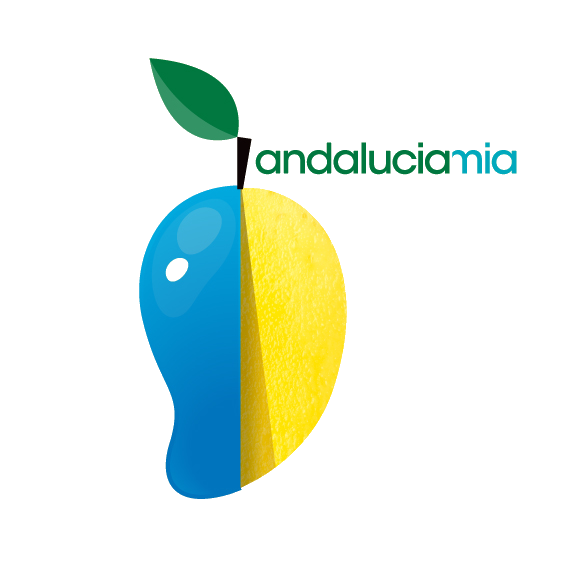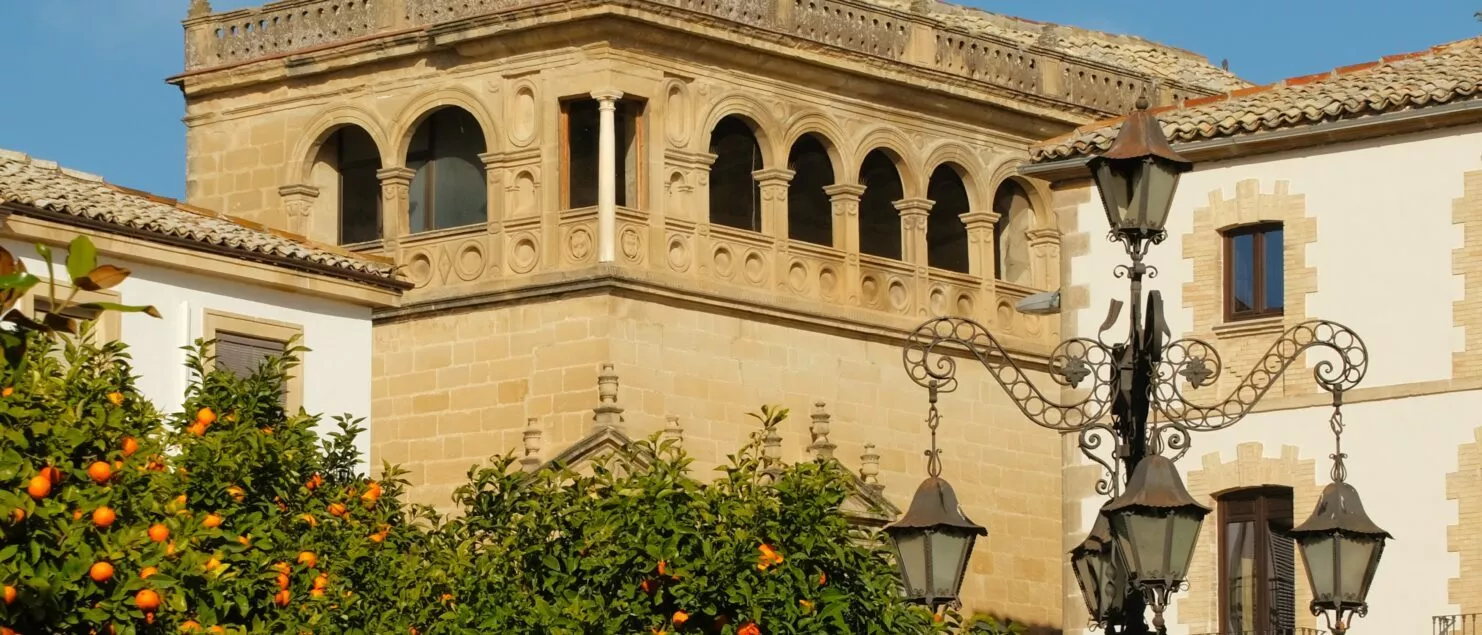Top 15 Must-See Attractions in Ubeda, Spain
Here’s what to see and do in Ubeda
In this article you’ll find all the information you need to visit and see the best of Ubeda:
- A few words about Ubeda and its origins
- Where is Ubeda on the map?
- What to see in Ubeda – the 10 essentials
- What to do in Ubeda
- Book accommodation
- Where to eat in Ubeda?
- Find a parking space
- The Ubeda Fair
- Map of places to visit in Ubeda
- What to see around this small town
- Some useful links
- The latest articles on authentic Andalucia
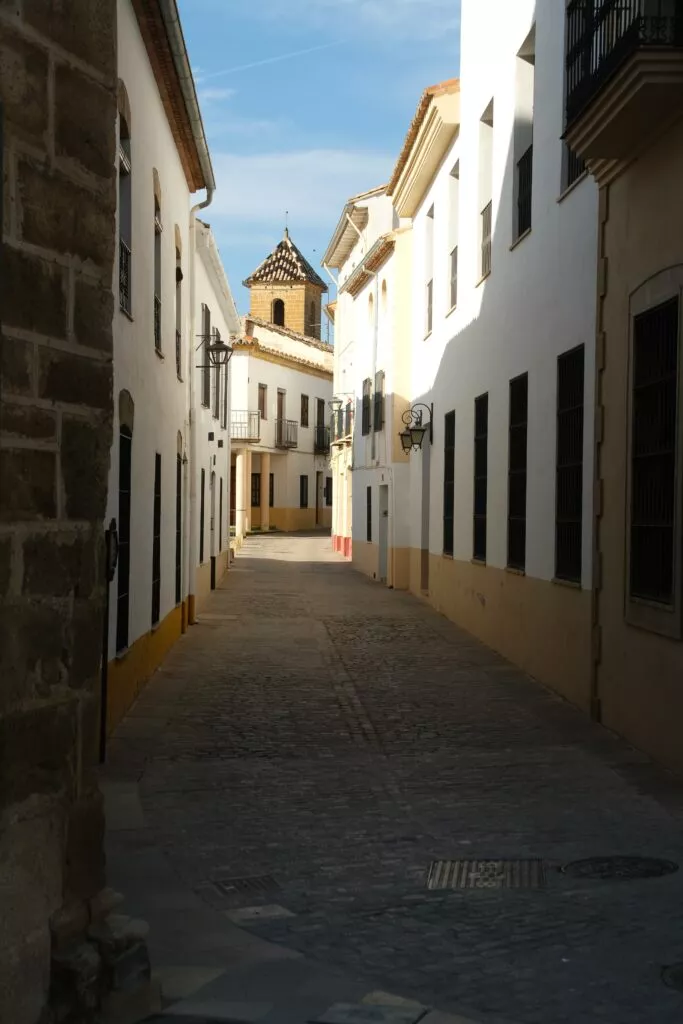
A few words about Ubeda and its origins
Ubeda is one of the essential towns to really explore on a trip to Andalucia. Along with Cordoba and Baeza (10km from Ubeda), it is one of the three cities listed as a World Heritage Site. There are plenty of places to visit.
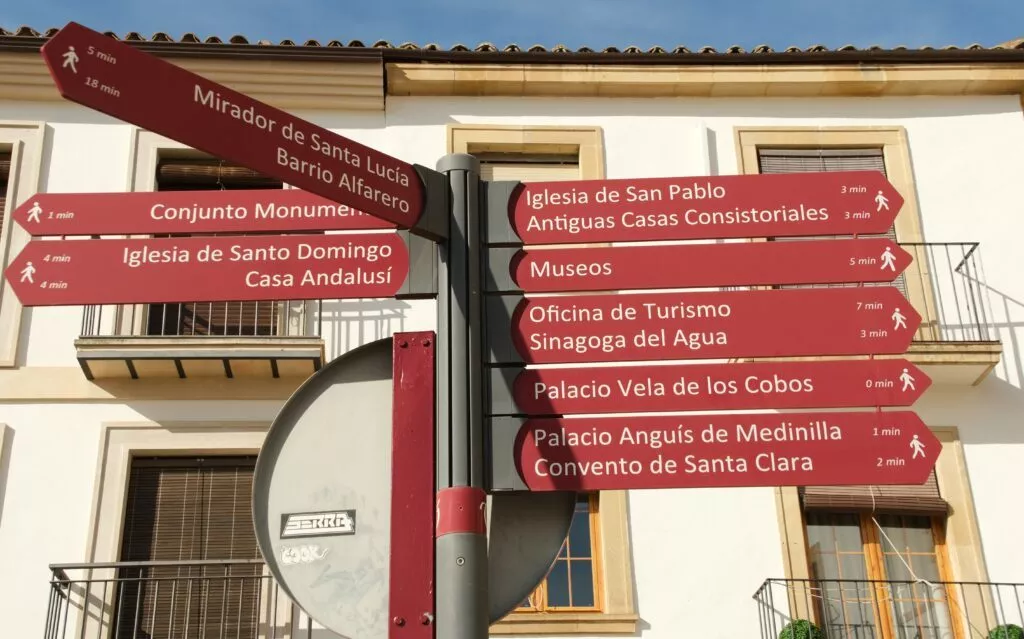
For a city of its size, the number of monuments to visit is truly impressive… .)
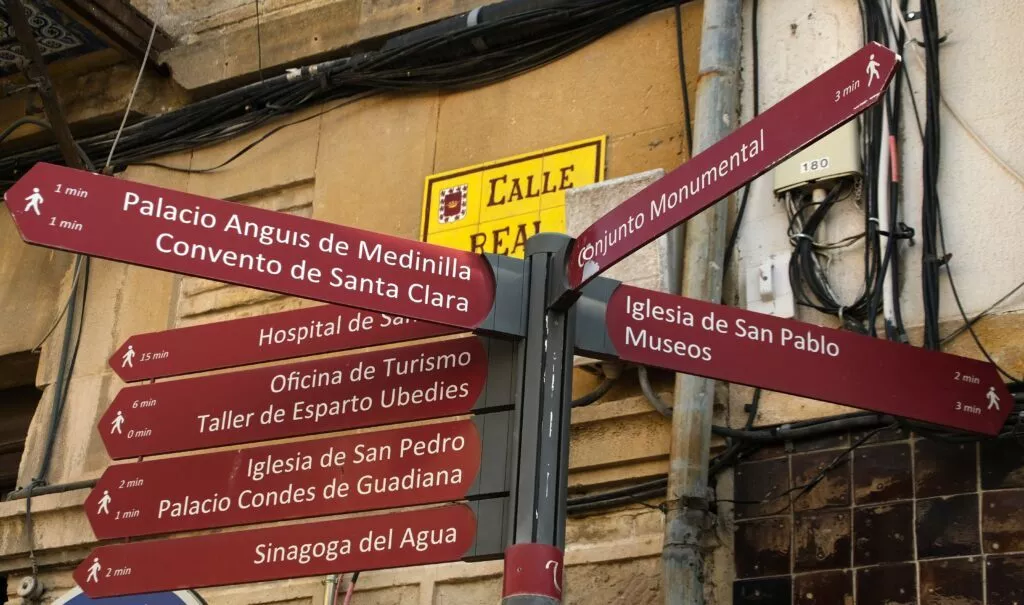
It is also considered to be one of the oldest cities in Europe. Its place names throughout history show the civilisations that settled here: Iltiraka for the Iberians, then Baetula for the Romans, followed by Betula Nova for the Visigoths, which became Ubbada under al-Andalus, and finally Úbeda.
The city’s economic activity, despite the incredible wealth of Renaissance monuments, is concentrated on olive oil production.
Note: the Jaen-Baeza-Ubeda triangle accounts for 15% of the world’s olive oil production!
Where is Ubeda on the map?
Ubeda is located in the heart of the province of Jaen, facing the Sierra Mágina and surrounded by a sea of olive trees. Just 10 km away is another World Heritage town, Baeza.
What to see in Ubeda – the 15 essentials
Here are the most beautiful monuments and sites to visit in Ubeda. And as the town is modest in size, everything is easily visited on foot as you stroll through the town. A little further down, you’ll find the option of booking a guided tour of the various sites listed below.
- Plaza Vázquez de Molina
- Sacra Capilla del Salvador del Mundo
- Palacio del Deán Ortega
- Church of Santa María de los Reales Alcázares
- Palacio de las Cadenas
- Water Synagogue
- Palacio de Vela de los Cobos
- Church of San Pablo, a must-see in Úbeda
- Tower of the Palace of the Counts of Guadiana
- Hospital de Santiago
- Úbeda Archaeological Museum
- Mirador del Salvador
- Puerta de Santa Lucía
- Olive grove and oil interpretation centre
- Paco Tito Pottery Museum
Plaza Vázquez de Molina
The Plaza Vázquez de Molina is one of the most beautiful squares in Andalucia. A visit to Ubeda often starts from this square.
In fact, this is where you’ll find a concentration of magnificent Renaissance architectural monuments, some of the finest in the whole of Spain.
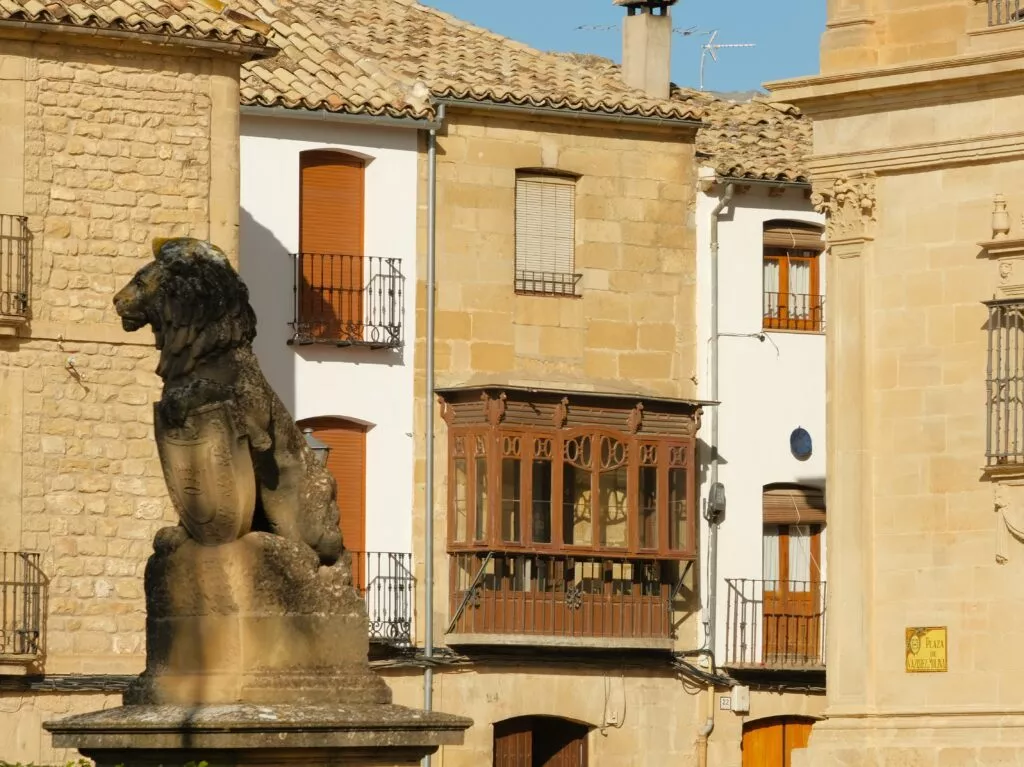
This square gives you the sweet sensation of being transported back to the 16th century:
- the Collegiate Church of Santa María
- the Sacred Chapel of El Salvador,
- grand palaces, the Palacio de Deán Ortega and the Palacio de las Cadenas
- the Palace of the Marquis of Mancera, former convent of the Servants of Mary,
- the Old Granary, now a National Police station
- the Bishop’s Prison, seat of the Courts,
Sacra Capilla del Salvador del Mundo
This is one of the most incredible Renaissance buildings in Ubeda. It looks like a church, but it isn’t, and in fact never belonged to the Church.
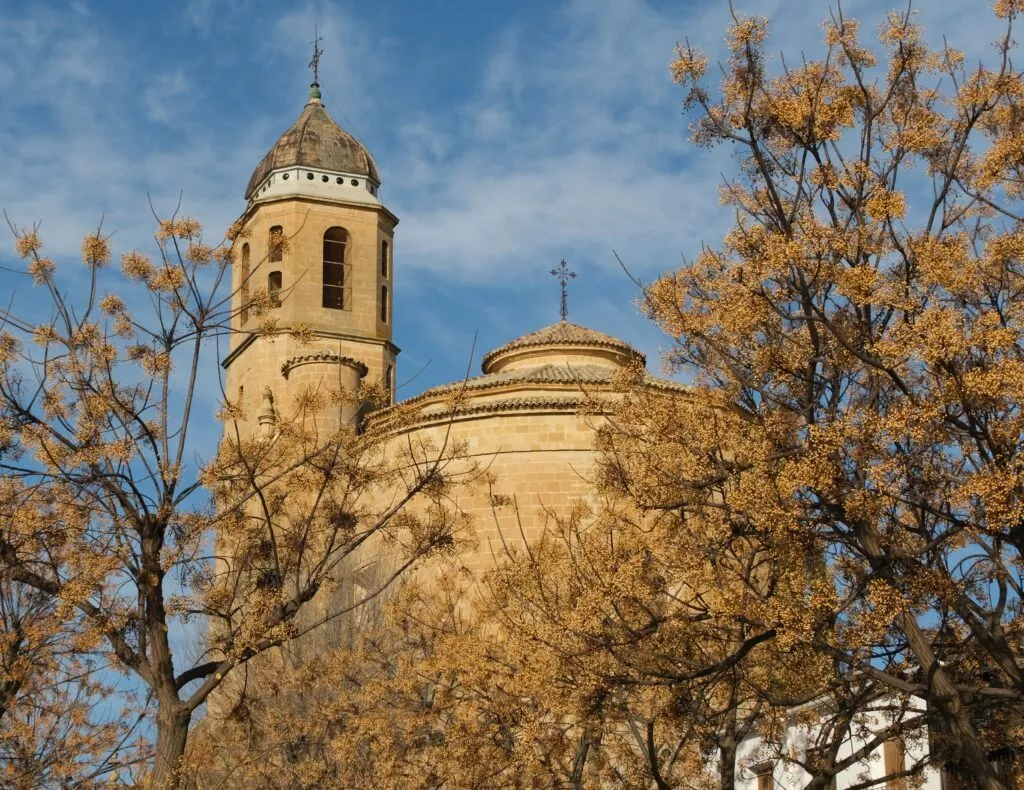
This Sacra Capilla del Salvador building – Sacred Chapel of the Saviour – was built as a pantheon – funerary temple – for the Cobos family and has remained private to this day.
Francisco de los Cobos, who had made his fortune, commissioned this building from the master architect Diego de Siloé, which was completed by the other great master Andrés de Vandelvira.
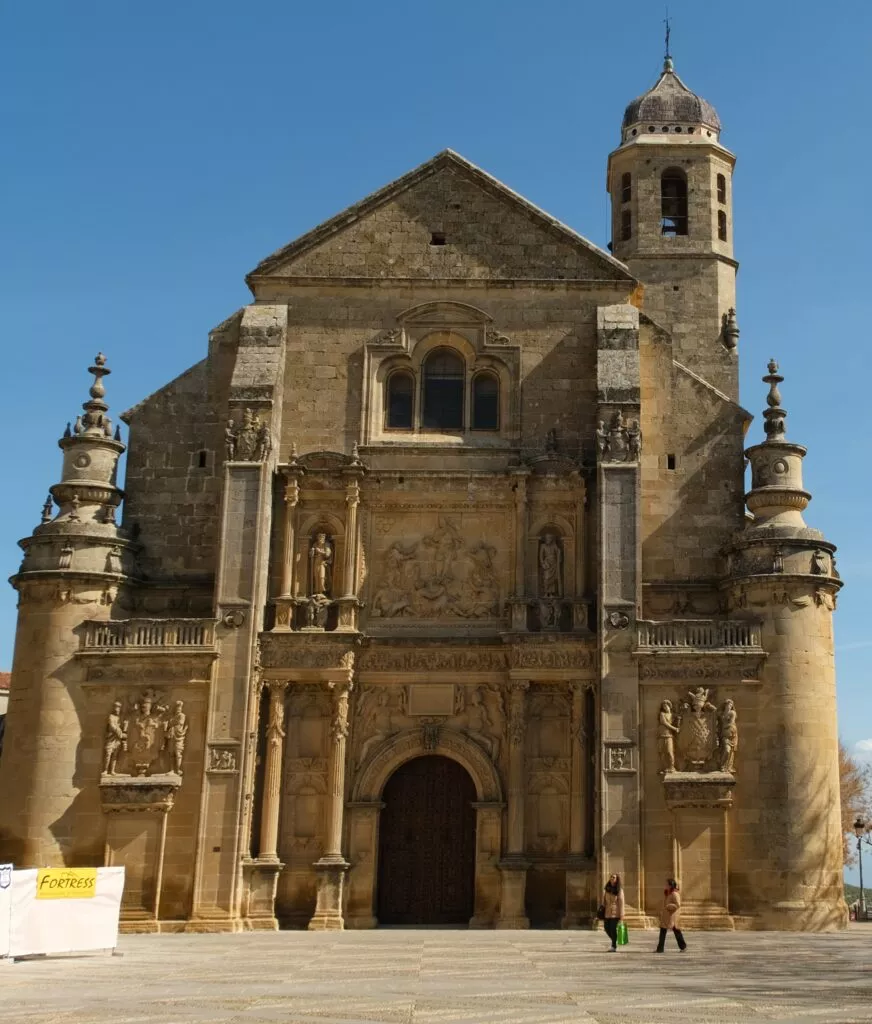
You can visit the sacristy of the Chapel of the Saviour, which is accessed through a door in a corner, bearing witness to the mastery of the architect Andrés de Vandelvira. This sacristy is considered to be one of the most remarkable works of the Spanish Renaissance.
Here’s a sneak preview on video :
Note: as well as the incredibly beautiful altarpiece, there is also the statue of San Juanito carved in marble and attributed to Michelangelo.
Palacio del Deán Ortega
In the Plaza Vázquez de Molina, next to the Sacred Chapel of the Saviour, stands the Palacio del Deán Ortega.
This is one of the most important Renaissance palaces to see in Úbeda.
And the good news is that you can even sleep in this palace. In fact, this sixteenth-century palace is a Parador Nacional de Turismo.
Note: here’s a link if you’d like to see more photos and/or book a room in the Parador de Úbeda.
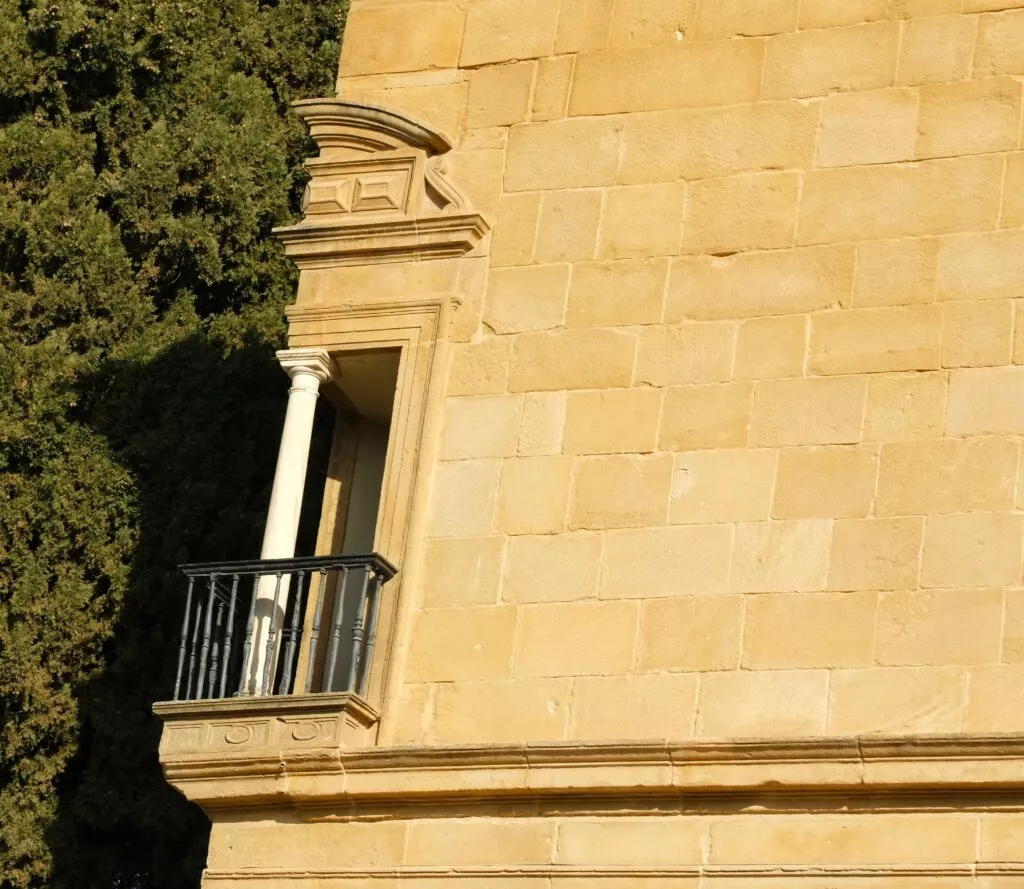
Behind its sober façade, you can see inside an elegant Renaissance patio on two levels, with slender marble columns. You can also simply enter to see the patio :).
Church of Santa María de los Reales Alcázares
Declared a national monument and a World Heritage Site, this collegiate church was built over the remains of the Great Mosque. Its Gothic, Mudejar, Renaissance, Baroque and Neo-Gothic styles all overlap to amaze and delight.
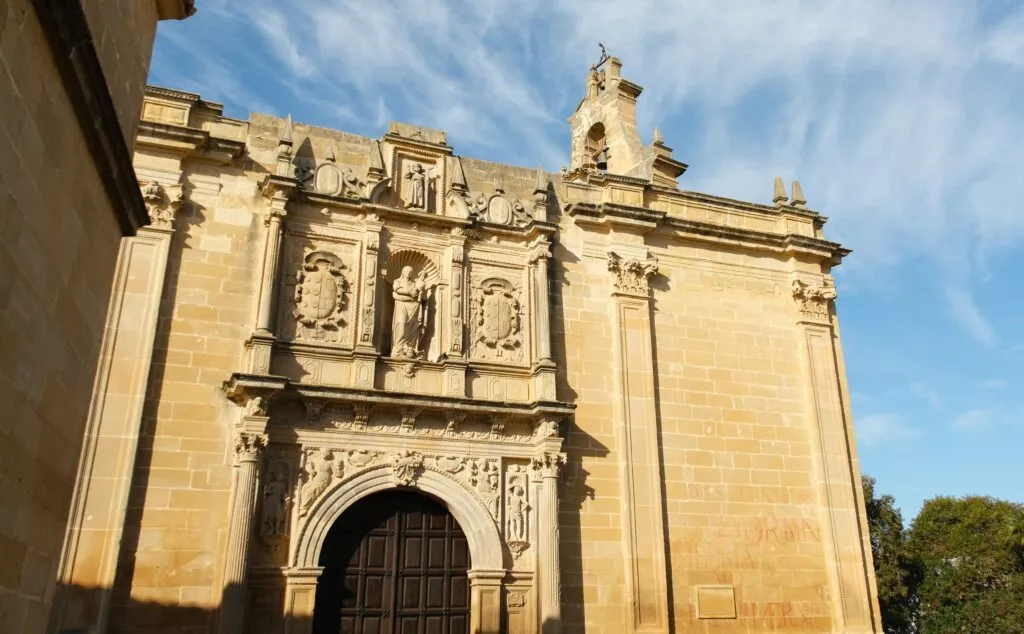
If you visit the church, you’ll discover a beautiful 10th-century cloister and a wealth of Baroque and Renaissance decorations.
It is located directly opposite the Palacio de las Cadenas, in the Plaza Vázquez de Molina.
Note: it is closed between 2 and 5pm and after 8pm.
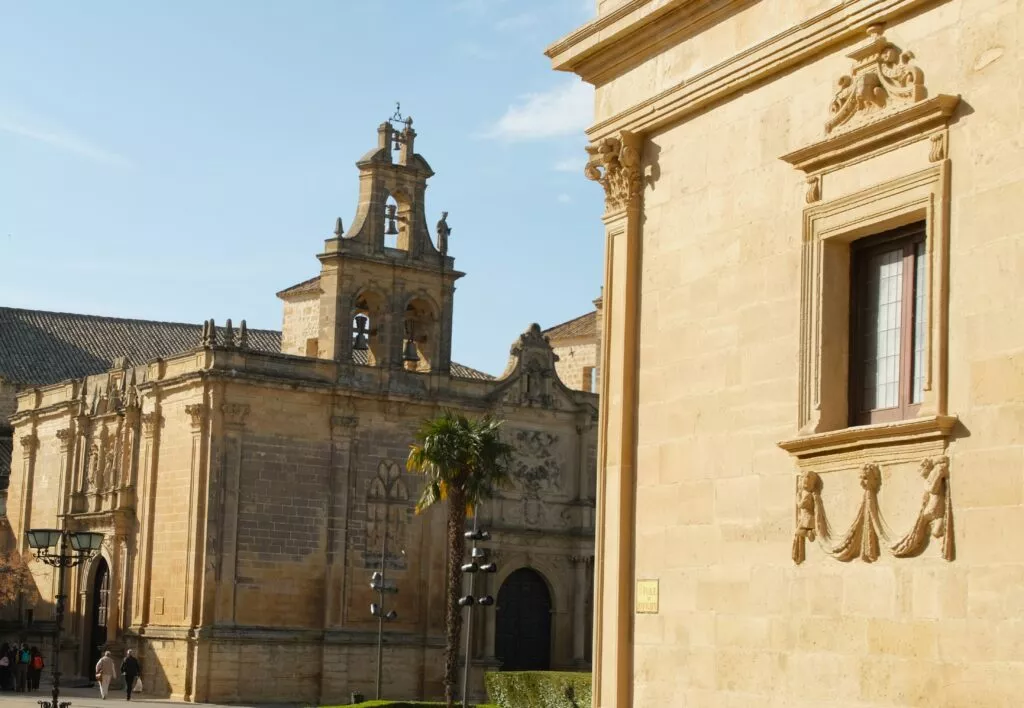
To make sure you can visit this incredible church, it’s best to book ahead.
Palacio de las Cadenas
This magnificent palace is still linked to the fascinating history of the de los Cobos family. It was under Philip II that a member of the family commissioned the construction of this impressive ‘mansion’. It was built in 1562 by Andrés de Vandelvira, Spain’s great Renaissance architect.
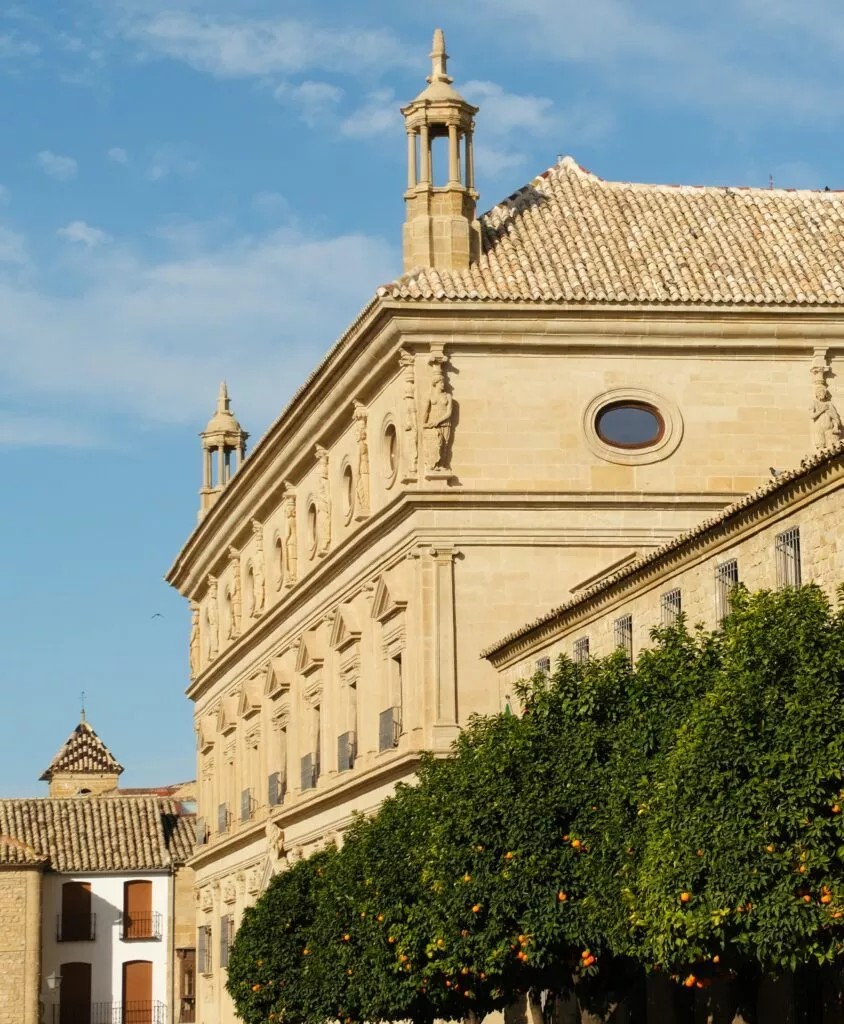
This palace, designed by the talented Andrés de Vandelvira, features a unique Renaissance style. Indeed, it is directly inspired by elegant Roman houses.
The palace took on the curious nickname of Palacio de la Cadenas (Palace of the Chains) after the death of Juan Vázquez de Molina. Having no descendants, it was subsequently occupied by a religious order known as the Madre de Dios de Las Cadenas. This is how it took on its current name.
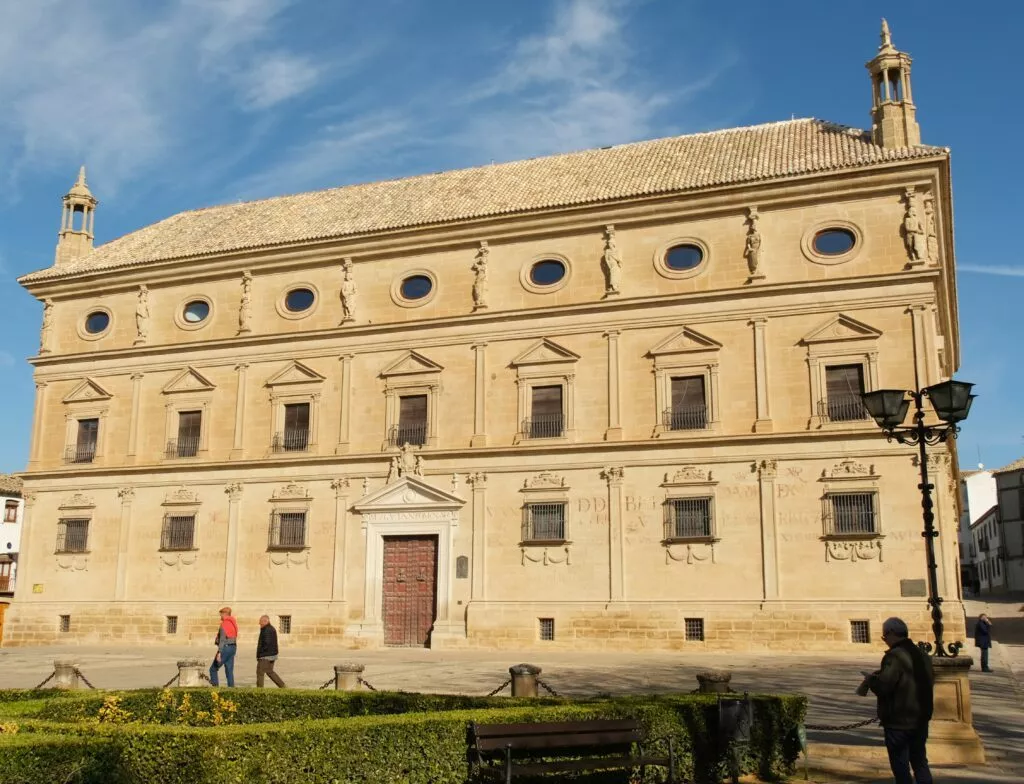
The palace has remained in good hands…. One of the country’s most beautiful Renaissance palaces has been the seat of the Úbeda Town Hall since 1850.
You can’t visit it, but you can go inside to admire the beautiful interior courtyard.
Water Synagogue
A must-see in Ubeda is the Synagogue de Salomon, also known as the Water Synagogue.
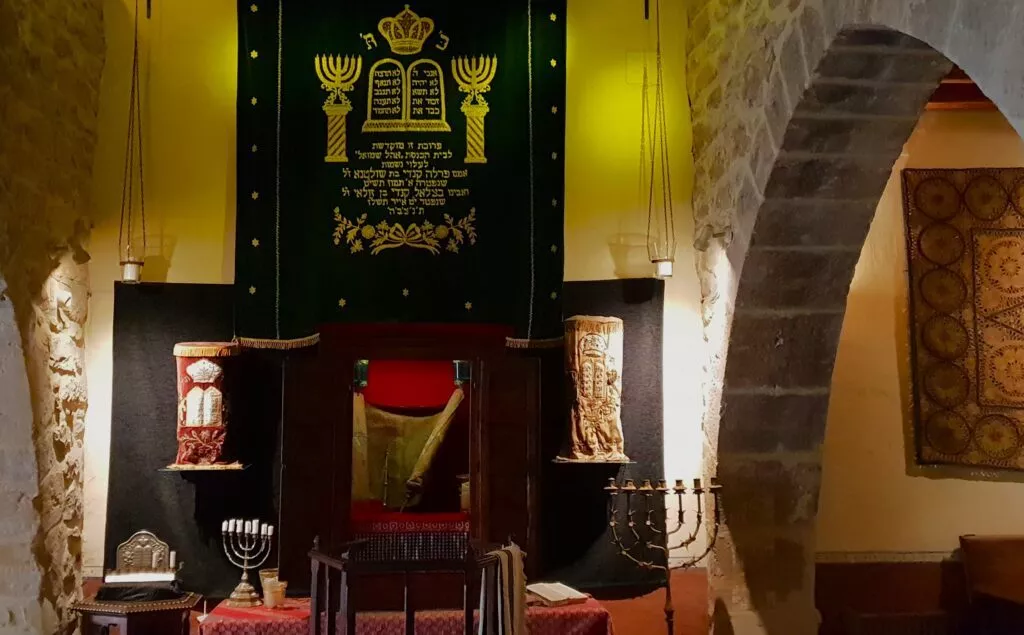
It is located not far from the Palacio de la Vela de los Cobos, and its recent discovery was a stroke of good fortune. Here is the story of this synagogue, along with a few photos:
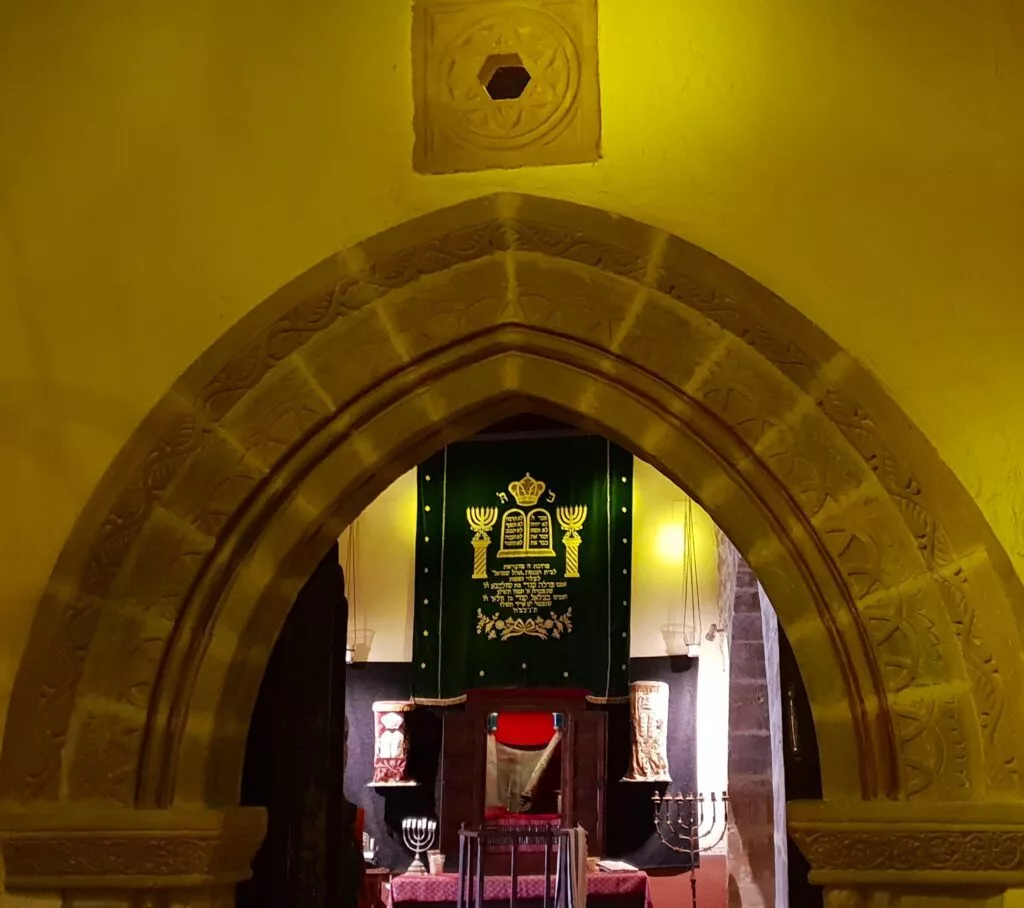
The discovery of the synagogue
In 2007, an entrepreneur bought 3 old houses in the centre of Ubeda with a view to building 2-storey flats, a shop on the ground floor and an underground car park. The work to demolish these houses, on the corner of two small streets, could not be carried out with a digger, so they had to be demolished bit by bit to remove the rubble.
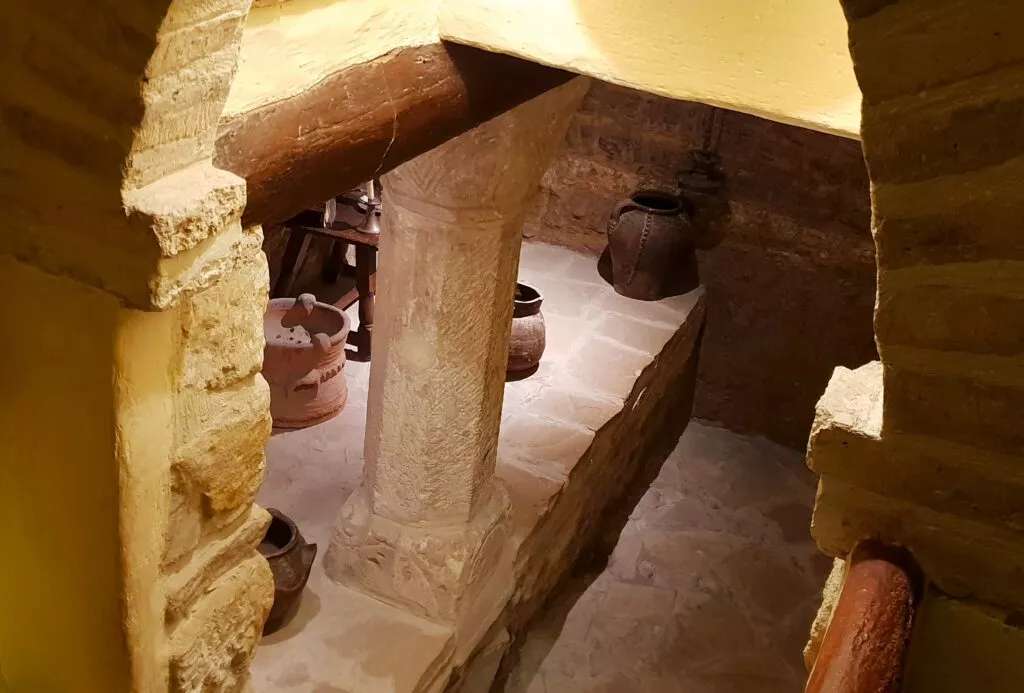
Then the miracle happened: hidden behind walls….the walls of an ancient synagogue – dating from the 13th century – and the rabbi’s house next to the synagogue were revealed.
Another incredible thing
When we dug underground, in addition to the wells, we discovered an area of wet earth. When you removed the earth, you discovered steps (7 steps) and then a mikveh.
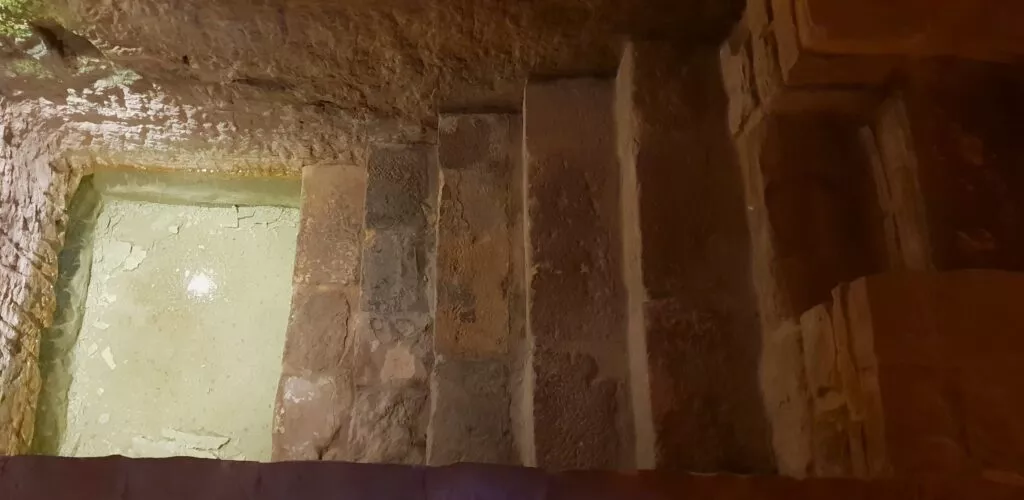
The mikveh is used as a ritual bath by the Jews, to purify themselves. It’s the only one I’ve seen like this in Andalucia, with water.
Curiosity and irony of history: the house and court of the Inquisition were set up on part of this synagogue from 1478. This was, of course, a terrible period for many people, including the anoussims (Jews forcibly converted to Christianity, in this case). There is a local hypothesis that it was an anoussim who ‘managed to become the director’ of the synagogue, in order to ensure that whatever needed to be hidden there was kept hidden.
The synagogue was opened to the public in 2010, and 30-minute tours in small groups are available. You can come directly to the synagogue.
The tour includes
- a very interesting room: the women’s gallery. This is an area reserved for women and children to attend religious ceremonies.
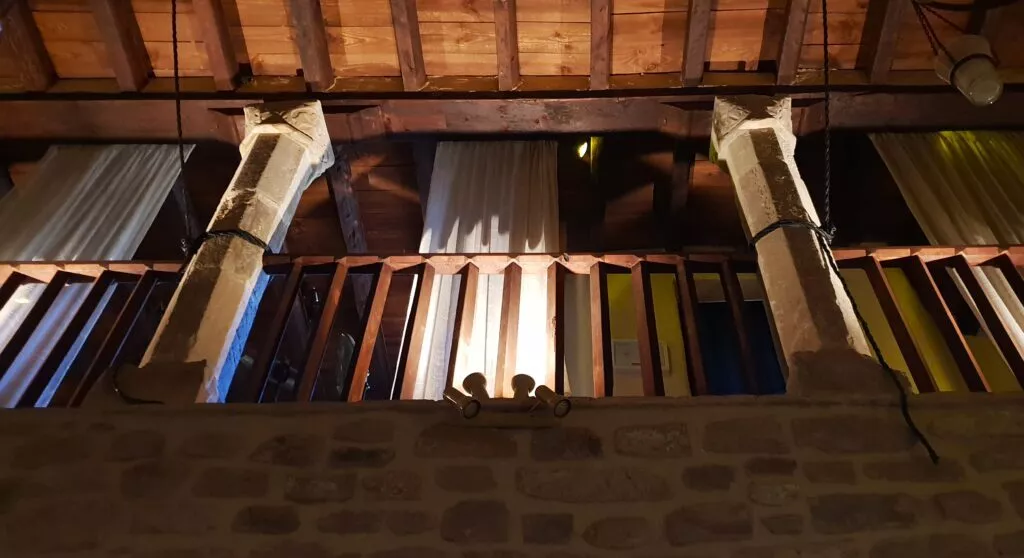
In southern Spain, the history of the Sephardic Jews can be discovered through a tour of the Sephardic heritage in Andalusia.
Palacio de Vela de los Cobos
The Renaissance Palace de Vela de los Cobos is located right next to the Palacio Vázquez de Molina. It dates from the 16th century and is in perfect condition.
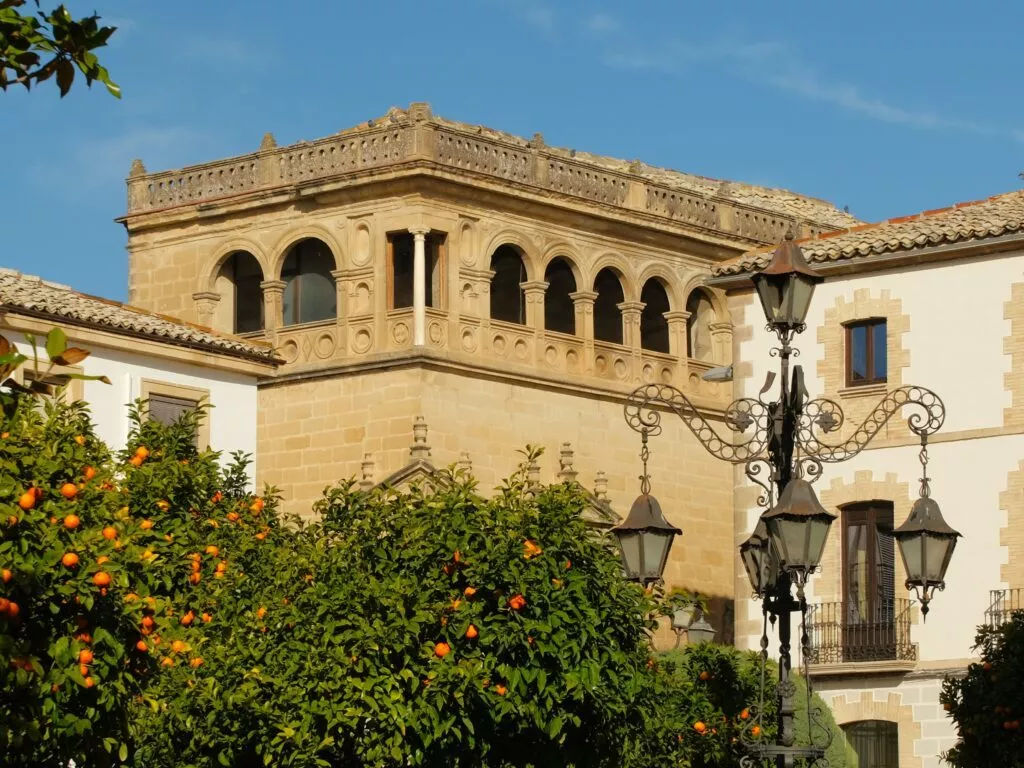
This is the one I found most splendid. It is another masterpiece by the architect Andrés de Vandelvira. It has been owned by the Sabater family since 1873 and visits are by appointment only. Here’s the link to book a tour (€5/person).
The interior is just as beautiful as the exterior. The French salon, gala dining room and library are truly impressive and well decorated.
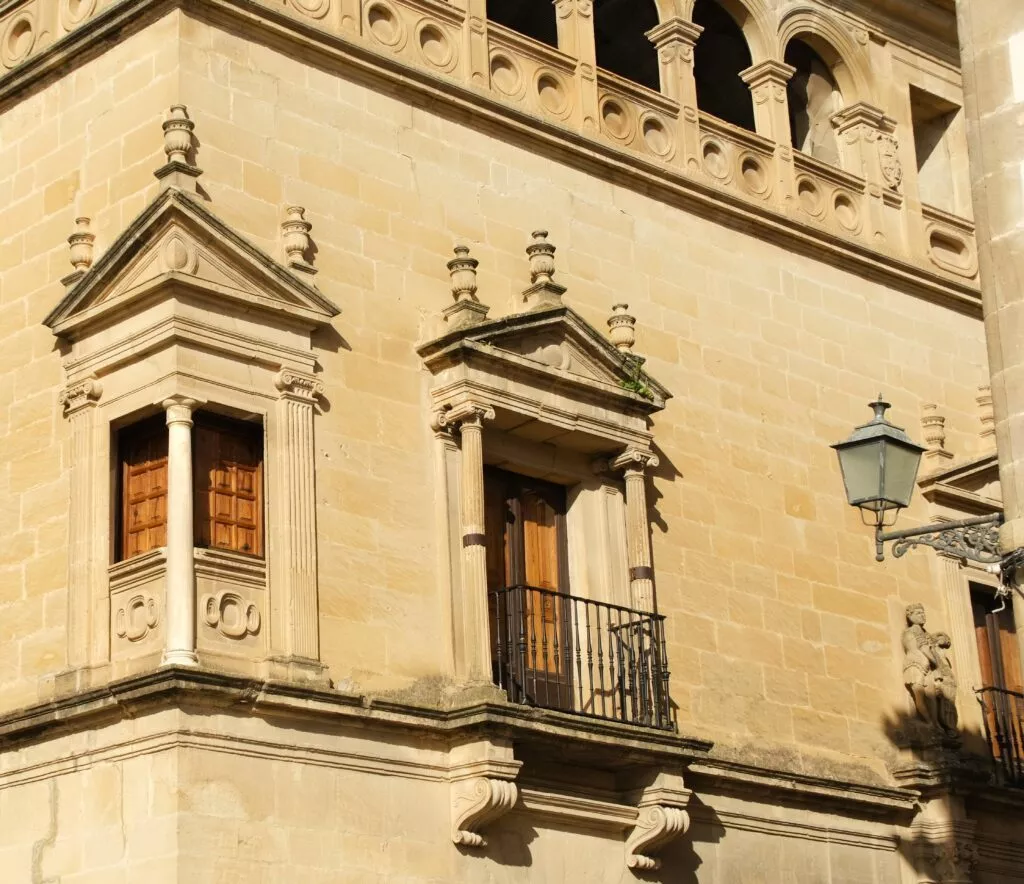
Note: the family of Francisco Vela de los Cobos, alderman of Úbeda and Secretary of State to Charles V, who amassed a great fortune and was one of the most powerful men in the country, lived in this building for many years.
Church of San Pablo, a must-see in Úbeda
The church of San Pablo, located in the beautiful Plaza Primero de Mayo, is one of the most beautiful sights in Úbeda. I was in awe as I toured this church and discovered its different aspects and styles.
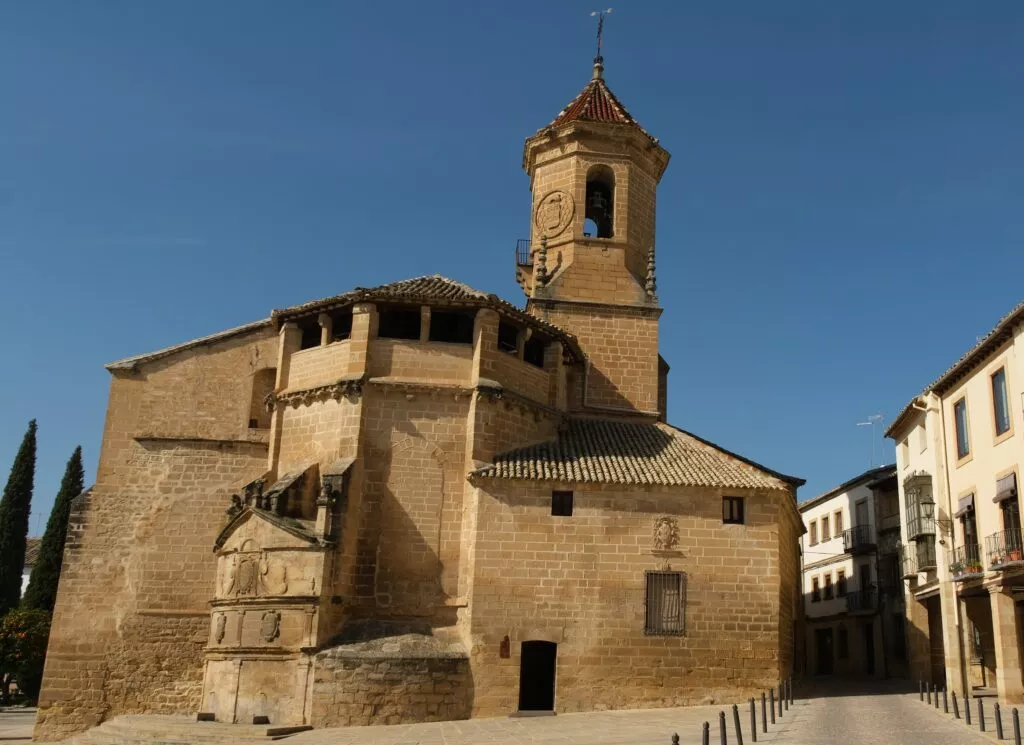
This 13th-century medieval temple occupies the site of a former mosque, which itself replaced a Visigoth temple.
It impresses with its mix of styles: Romanesque, Renaissance and Gothic on the inside. The church contains numerous altarpieces and chapels. It is one of the city’s artistic and historical treasures.
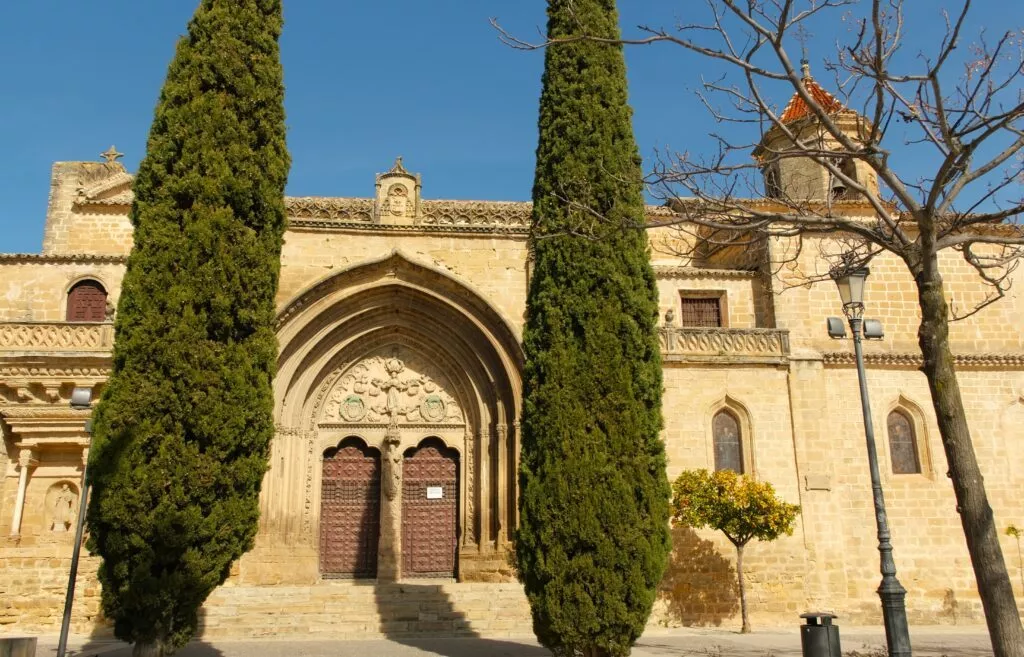
The sublime San Pablo church is located in the Plaza del 1 de Mayo. This square is surrounded by magnificent buildings.
This square is colloquially known as the Paseo del mercado. In the past, it was used as a bullring. And in al-Andalus, it was the market square, hence perhaps its nickname of paseo del mercado. Below, the old town hall with its beautiful balcony, where you could take a pulse of the people who gathered here for every event.
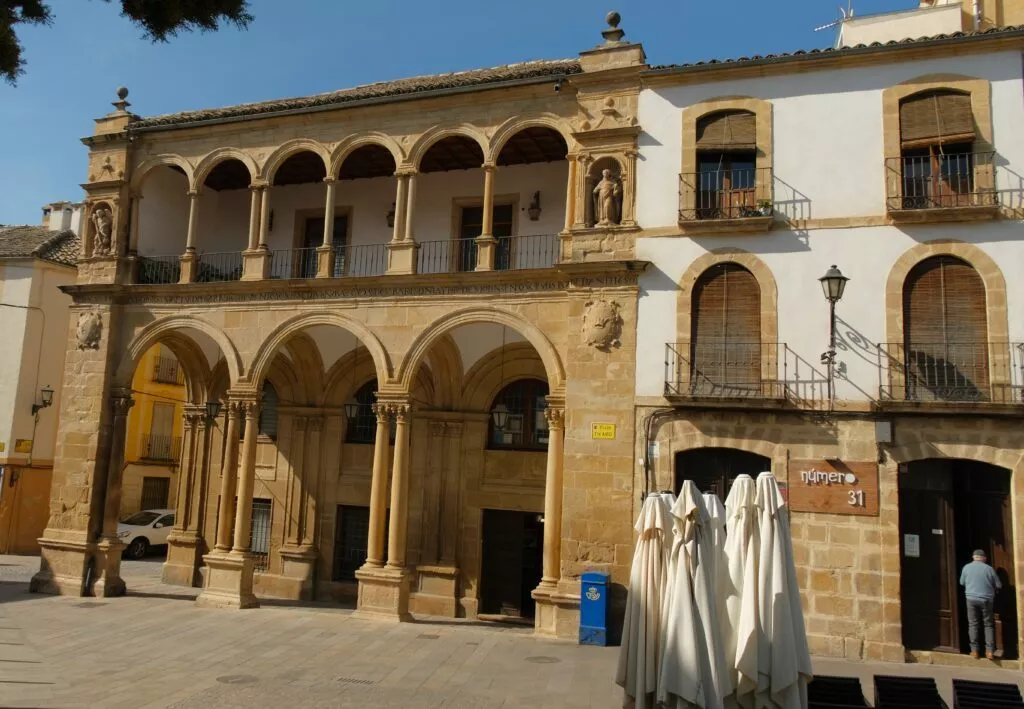
Finally, at number 20 of this square is the birthplace of Joaquín Sabina. More on this famous singer below.
Tour of the Palace of the Counts of Guadiana
The Palace of the Counts of Guadiana is one of the architectural gems of the Andalucia Renaissance, particularly its tower. It is undoubtedly one of the most beautiful in Spain:
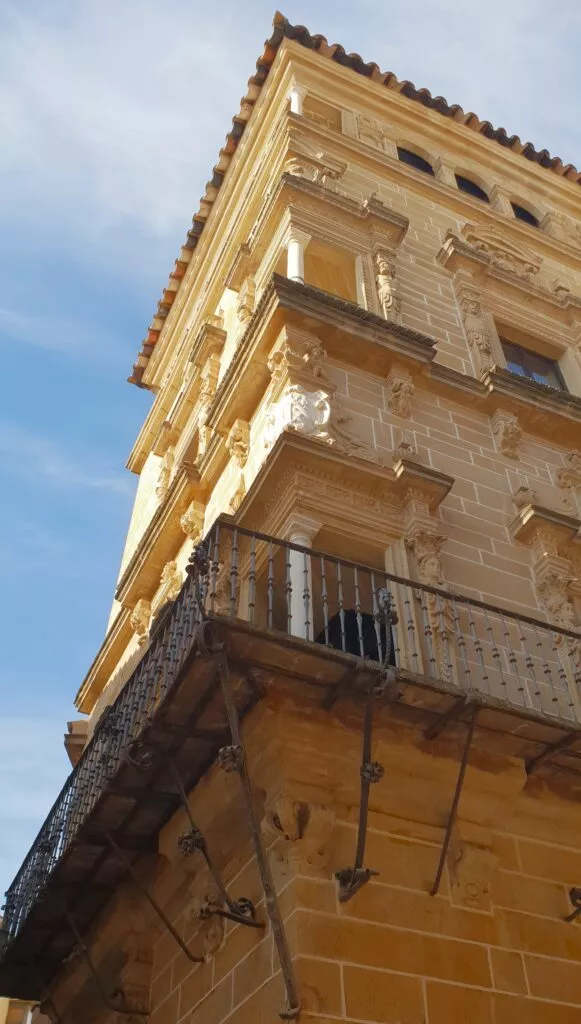
The palace is located in the heart of the city on Calle Real. And if you feel like treating yourself, you can stay overnight. In fact, it is now a hotel. In fact, it’s the only 5-star hotel in the entire province of Jaen. Its Renaissance thermal baths, and the view from the rooftop pool terrace, are marvellous.
Here’s a link if you want to see more photos and/or book : Hotel Palacio de Guadiana.
Santiago Hospital
The Hospital de Santiago is a beautiful building. Built between 1562 and 1576, it was designed by the architect Andrés de Vandelvira.
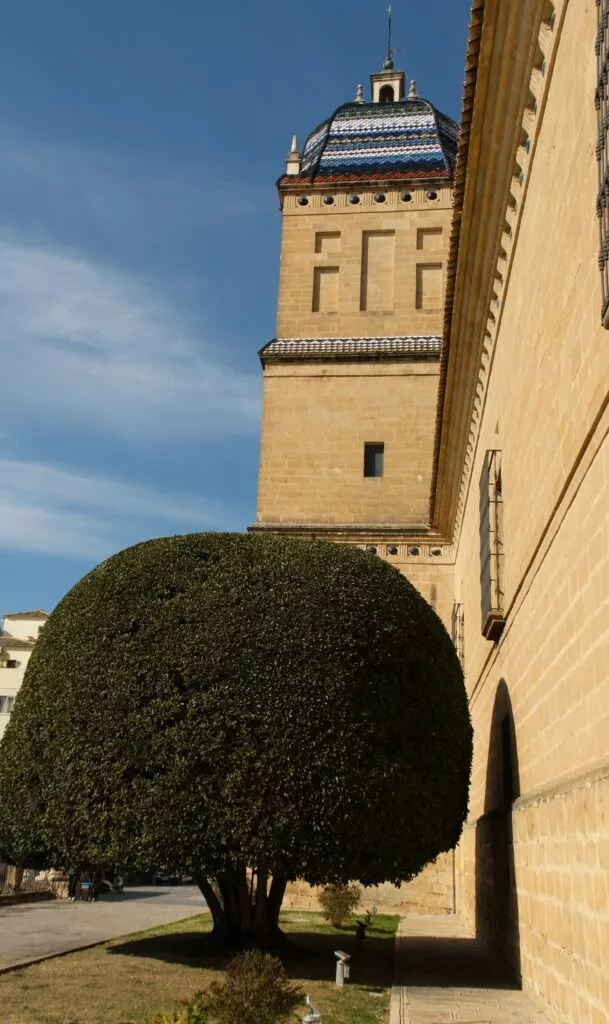
It perfectly represents the city’s splendour during the Renaissance period. The building was in fact a hospital for the sick poor.
The structure also included a church, a pantheon and a palace!
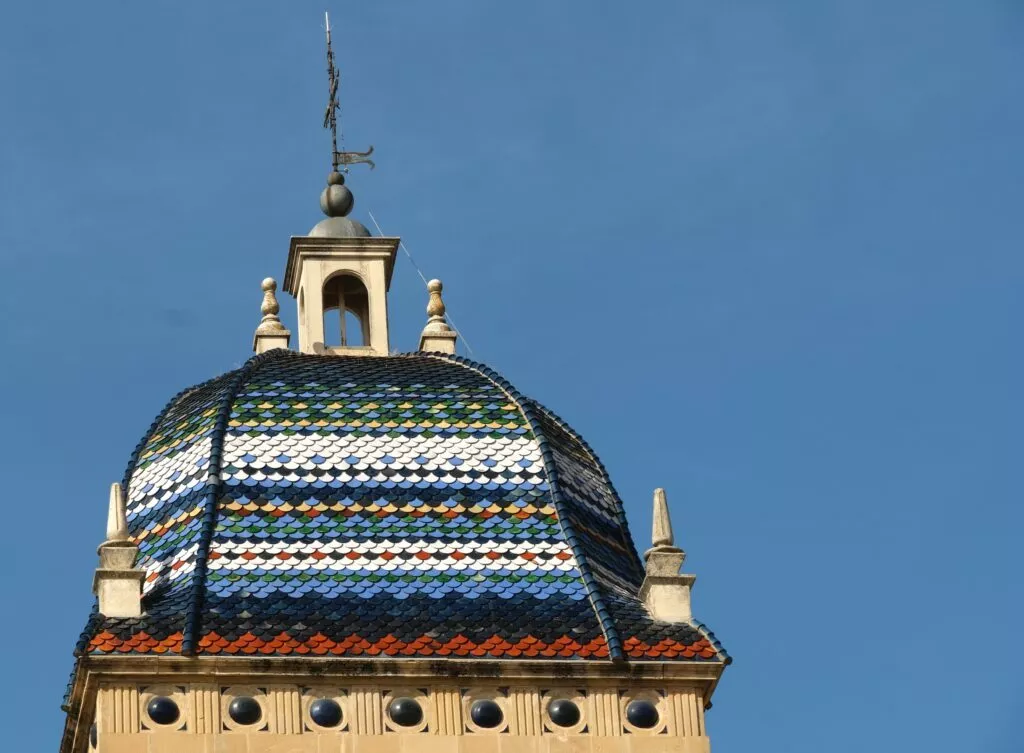
Santiago Hospital remained a hospital until 1975. Today it is a cultural centre, and the good news is that it is free to visit.
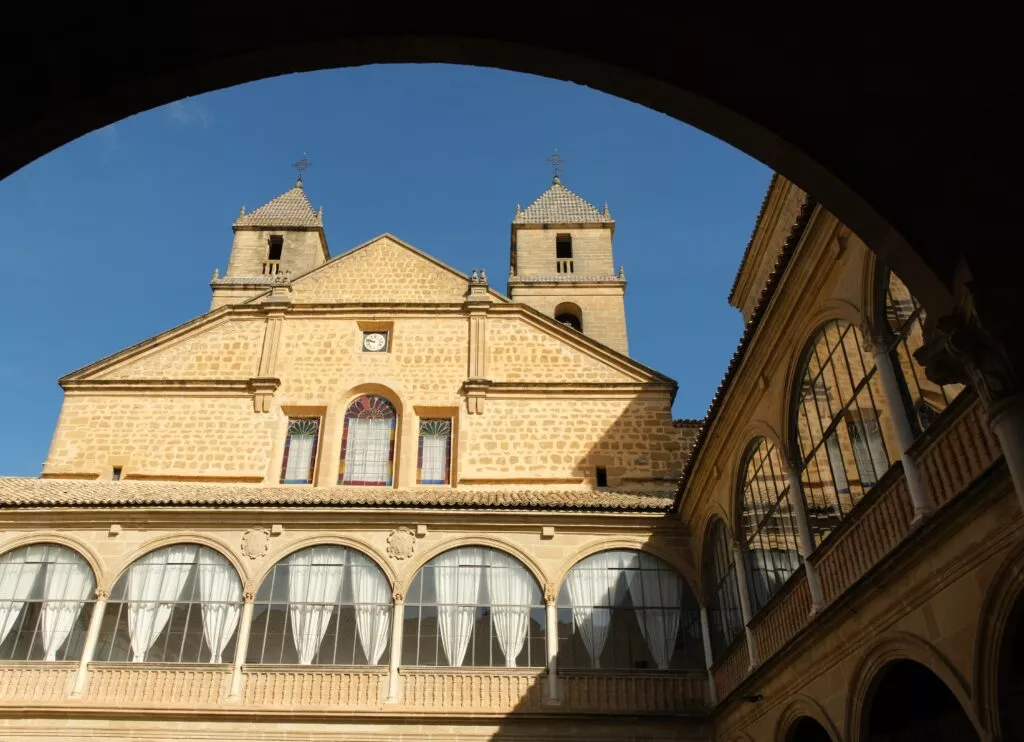
Just after entering, you come across a beautiful courtyard. At the far right you can take an imperial-style staircase. Be sure to stop on one of the steps to take a look at the superb paintings on the ceiling!
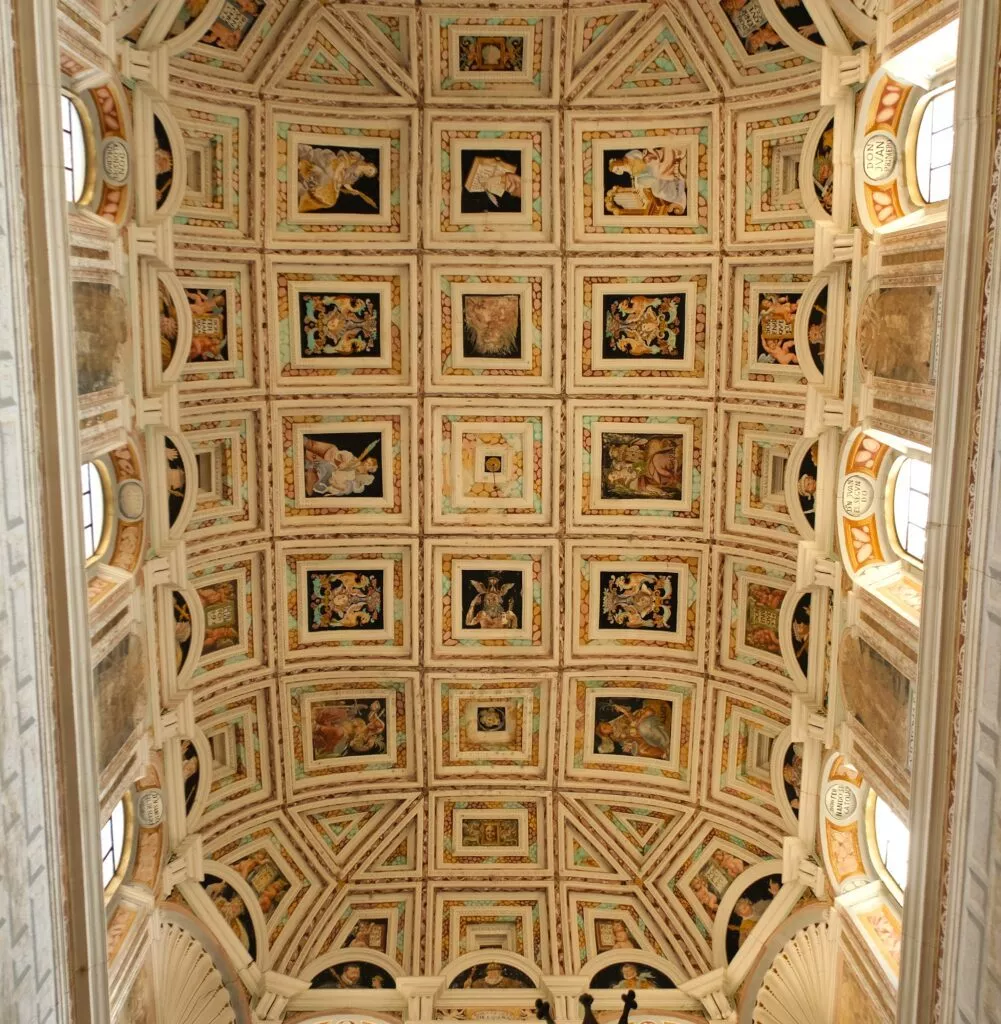
Úbeda Archaeological Museum
This small museum is located not far from the synagogue. It is housed in a 14th-century Mudéjar-style building.
Entrance is free, and begins with a pretty patio. From the patio you can access four galleries in which you can discover vestiges of the different civilisations that settled here.
Mirador del Salvador
From the Mirador del Salvador, which stands behind the Sacred Chapel of the Saviour, you can enjoy a magnificent view of the sea of olive trees that surrounds Ubeda.
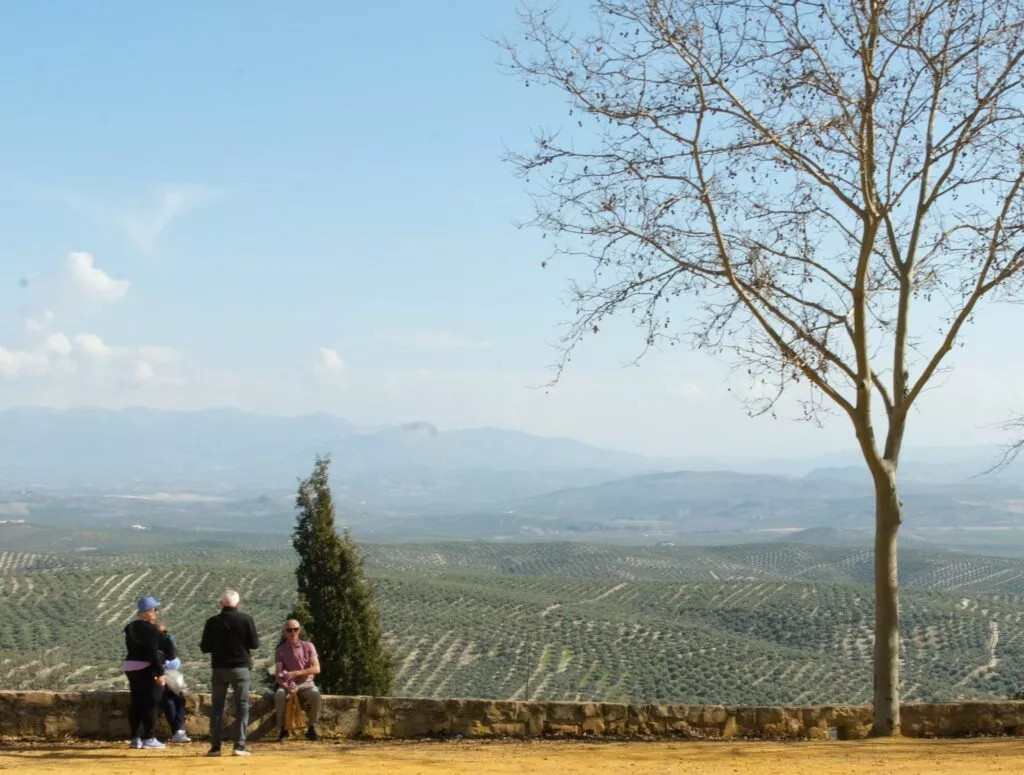
On the horizon you can see Cazorla and on your right the Sierra Mágina.
Puerta de Santa Lucía
Next to this lookout point in El Salvador is the Puerta de Santa Lucía.
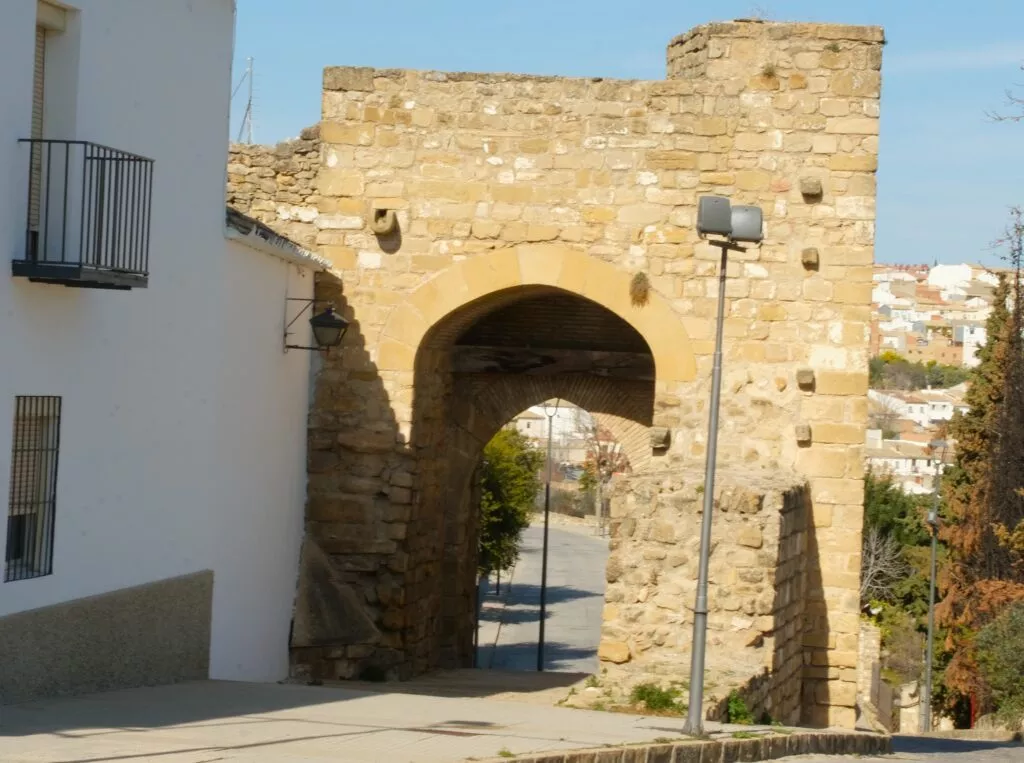
This is one of three gates – out of nine – that remain from the old medieval wall – dating from the 10th century – that surrounded the city. The other two gates are the Puerta de Granada and the Puerta del Losal.
Olive grove and oil interpretation centre
This centre allows visitors to experience this age-old culture through their five senses.
The building housing the centre is called ‘La Casa de la Tercia’. It’s a place where past and present, tradition and new technologies come together. The history of this house is very interesting to discover on site.
Here’s the link to book a guided tour and take part in a cata de aceite (olive oil tasting).
Paco Tito pottery and ceramics house with shop and museum

This is one of the most curious places in Ubeda, and well worth a visit for the sheer pleasure of it. I visited the shop and the workshop, and I can guarantee you a wow effect even without visiting the museum.
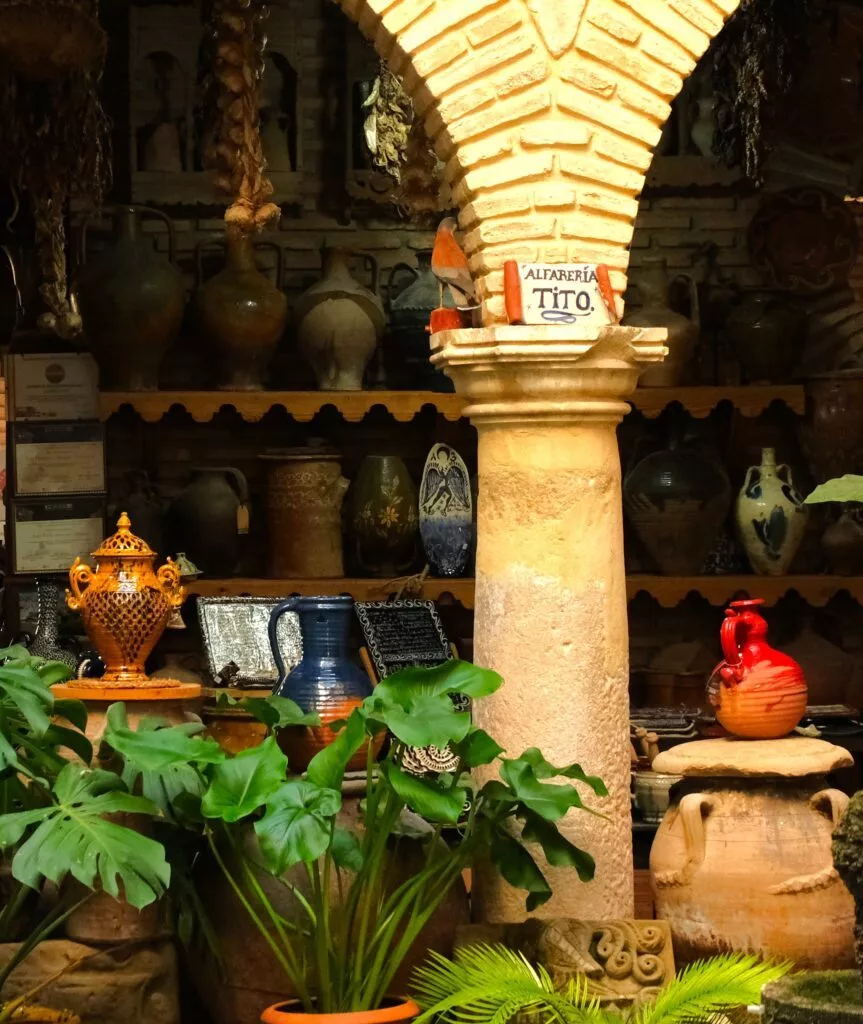
The Tito family have been potters and ceramists for several generations. As part of the workshop is in the shop, you can see the potters at work. Their pottery consists of kneading, modelling and firing pieces of clay using age-old techniques.
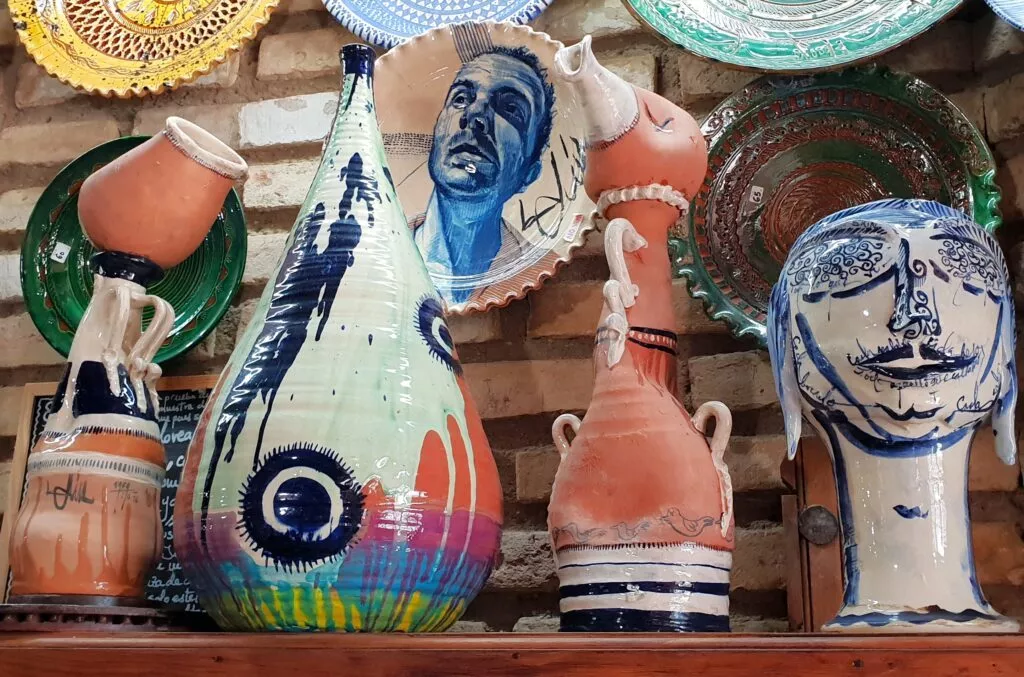
In fact, this workshop has one of the last six Arab kilns still in use in Spain.
Finally, curiosity prompted me to ask to open the door to the courtyard of this incredible workshop. In this courtyard, more beautiful things, and a richly decorated swimming pool :)) :
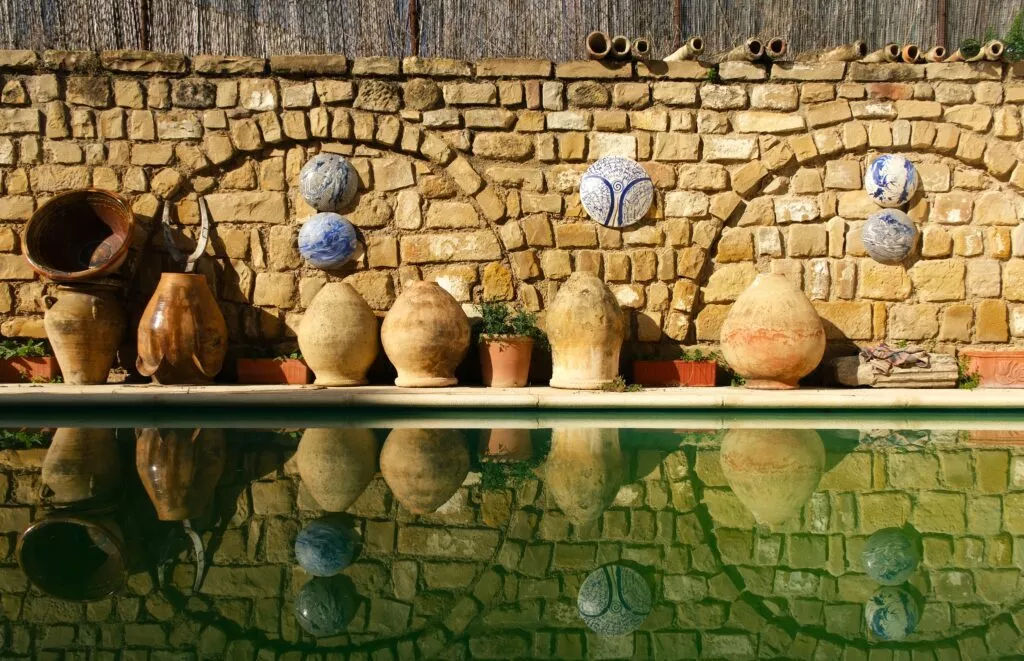
What to do in Ubeda
Below you’ll find the best of the guided tours and activities on offer in Úbeda.
You can also book them online today (with free cancellation):
If you’re lucky enough to be able to stay overnight in Ubeda, there’s a great tour organised at dusk. The atmosphere with the lighting is great. Here’s the link to find out more and/or book the night tour.
Note: it’s also possible to take an evening guided tour on the mysteries and legends of Ubeda 🙂 .
Book accommodation
Below you will find all the hotels and accommodation available in Ubeda, after selecting your dates :
Where to eat in Ubeda
Calle Real is Úbeda’s main thoroughfare, home to a large number of tapas bars, so it’s the ideal place to go when visiting the city.
For a very local lunch, head to the Plaza de Toros district. This is the place where the people of Ubeda are in the habit of echar la ligá or ir a ligar.
Yes, it’s a surprising expression, but it’s typical of the province of Jaen. Ir a ligar does not mean the same thing as in the rest of Spain, i.e. going out to pick up girls.
It simply means to go out for a drink or some tapas (salir de cañas o de tapeo).
Calle Melancolía tavern
This is the place, right in the centre, where music, poetry and the legacy of Joaquín Sabina meet. The Taberna Calle Melancolía is named after one of the singer’s most emblematic songs.
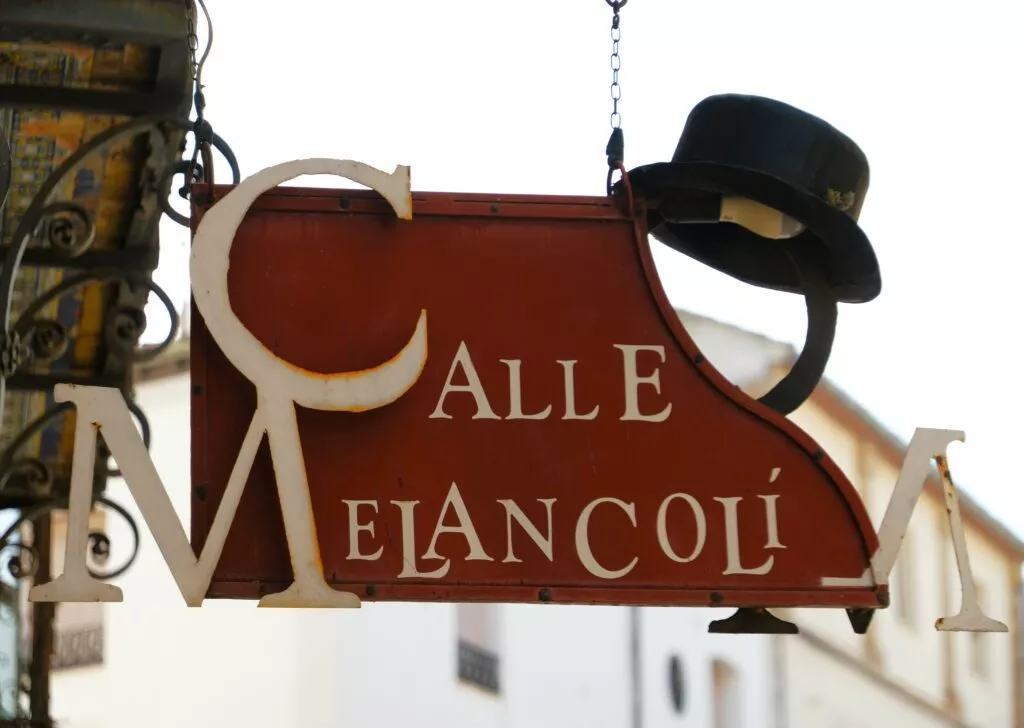
Here you can enjoy a delicious meal, surrounded by photos of the singer that reflect his passion and bohemian spirit.
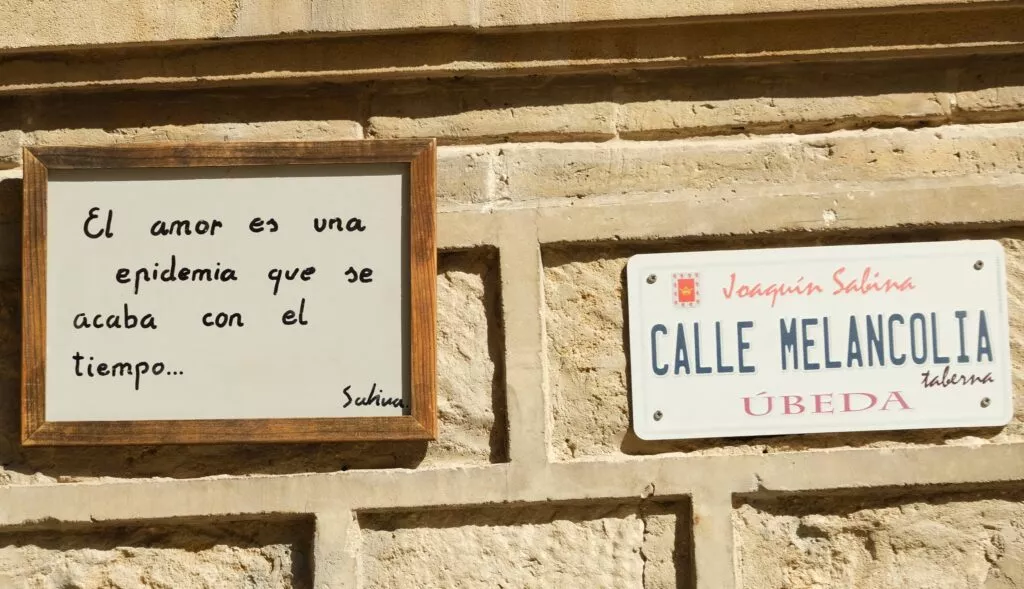
Between the decor and the music selection, you’ll be immersed in the atmosphere of this artist. A wonderful sensory experience.
Gastrobar Llámame Lola
This restaurant was another favourite. The dishes are very good, all prepared ‘con mucho cariño’ and with style. Here’s the address: the gastrobar is behind the sacred chapel of the Saviour.
Finding a parking space
One of the best ways to find parking in Ubeda is to arrive early and leave your car in the free car park in Plaza de Santa Clara.
There are also free spaces in Calle Santo Domingo. Alternatively, there is an underground car park in the Plaza de Andalucía.
The Ubeda Fair
Ubeda’s main fair takes place in late September and early October: Fiestas de San Miguel.

Map of places to visit in Ubeda
Here’s a map of the 15 best places to visit in Ubeda, including the Calle Melancolía bar.
What to see around Ubeda
A visit to Ubeda is usually rounded off by 2 towns:
Jaen, the provincial capital, with its fabulous cathedral and castle.
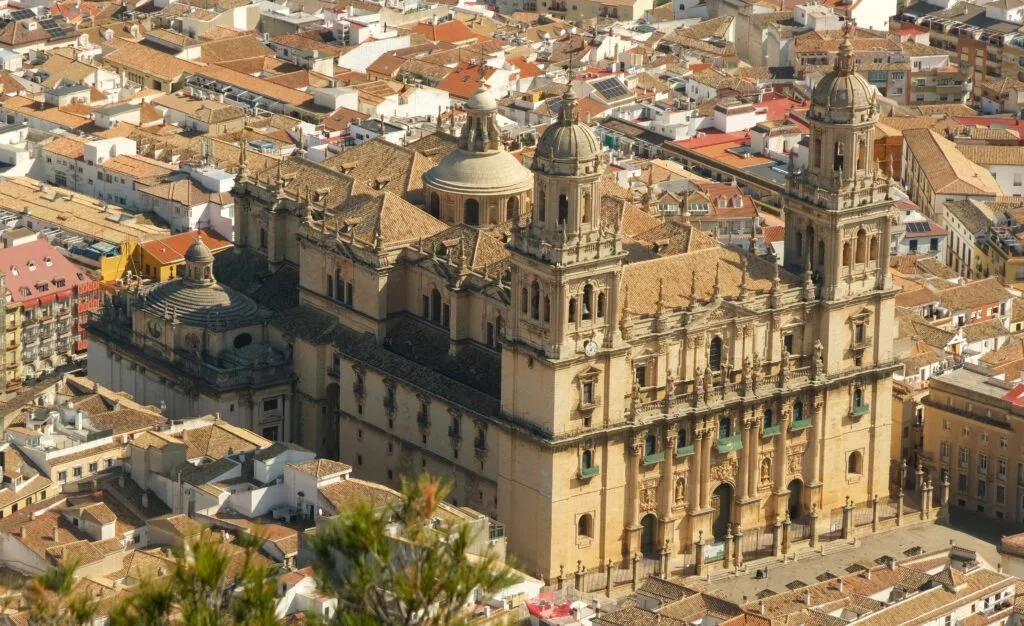
Here’s a link to the best of Jaen.
Baeza, a Renaissance city also listed as a World Heritage Site.
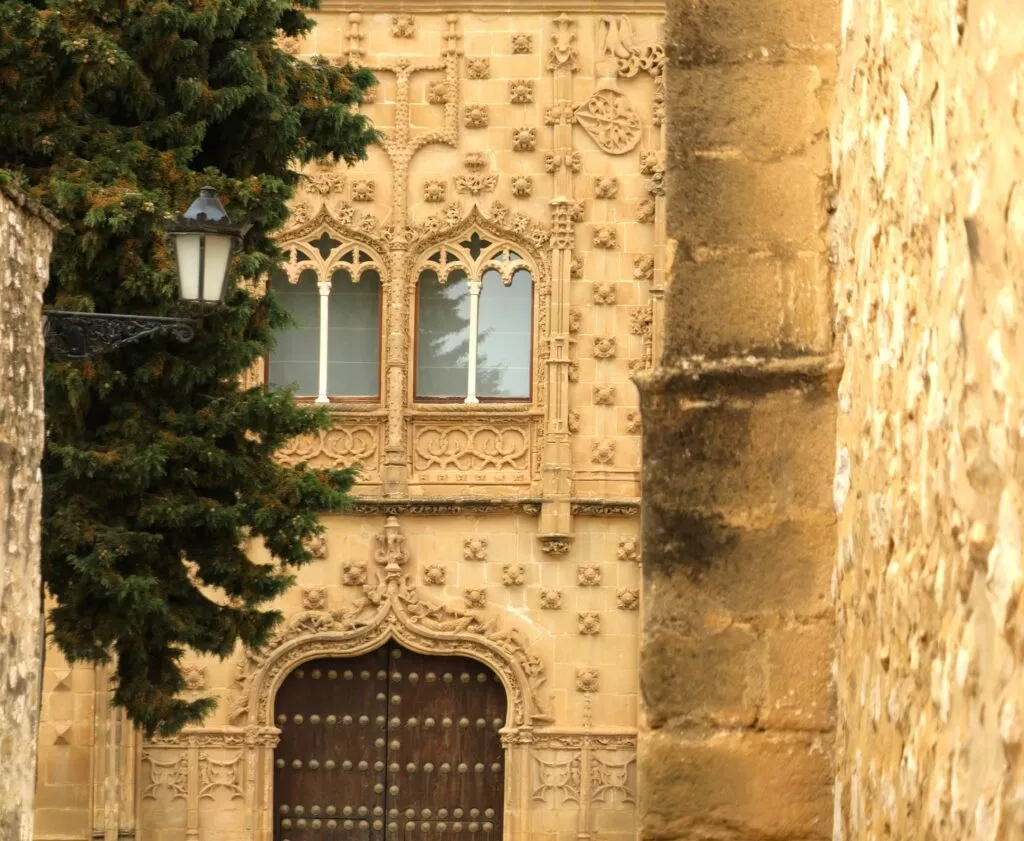
Here’s the link to visit and see the best of Baeza.
Some useful links for coming and staying in Andalucia for a few days
Staying on the Costa del Sol? Explore Andalucia with excursions from Malaga (Torremolinos, Estepona, Benalmadena).
If you’re planning to visit Andalucia, including Seville, you can explore Seville on a private guided tour.
Easy and economical bookings
Here are the latest articles on Andalusia
-
Interactive map of Andalucia with best places to see
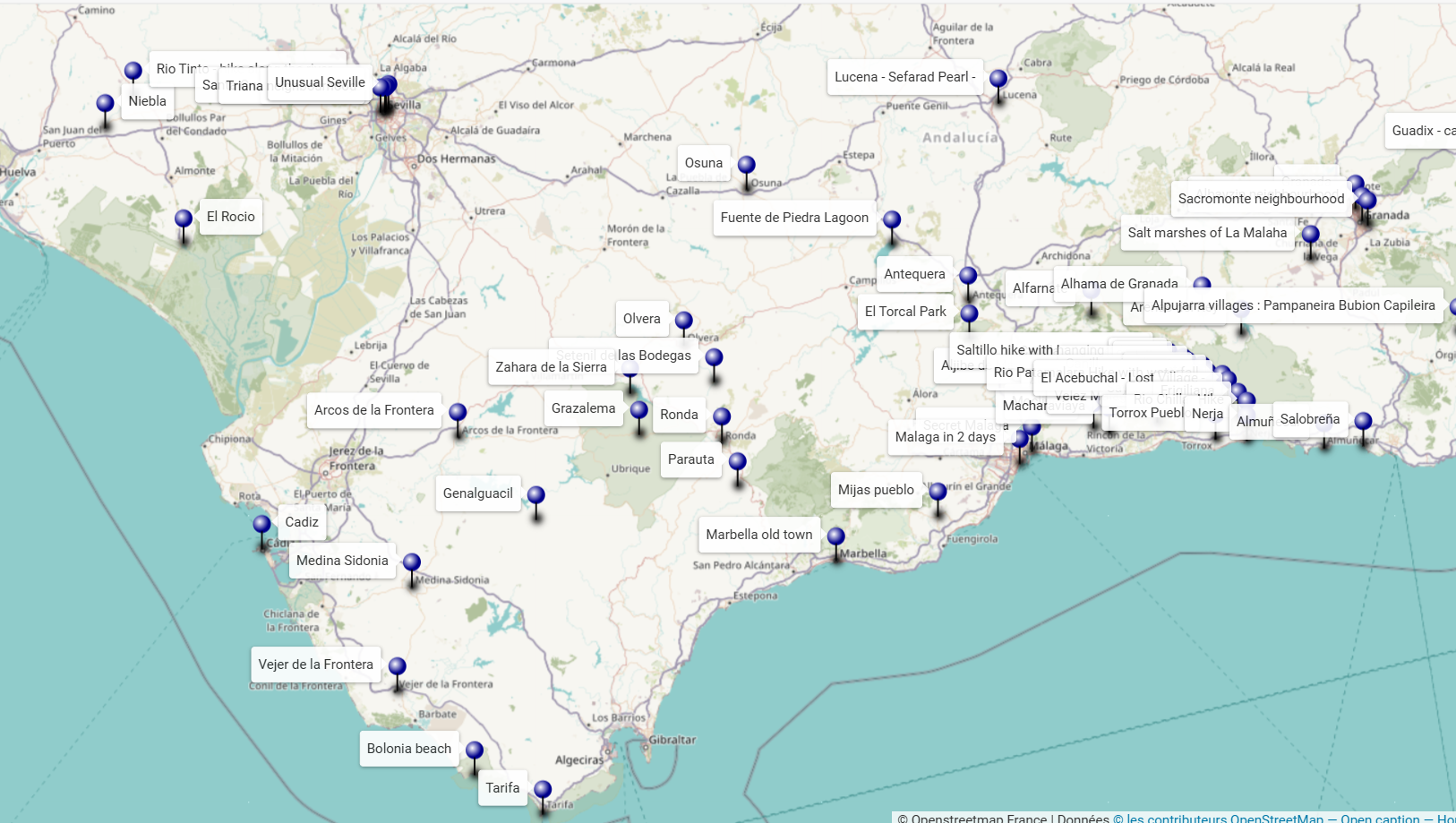
An interactive map of Andalucia to discover the sites to see around your holiday destination or to prepare a tour or road-trip.
-
What to see in Mojacar, a wonderful white village in Almeria
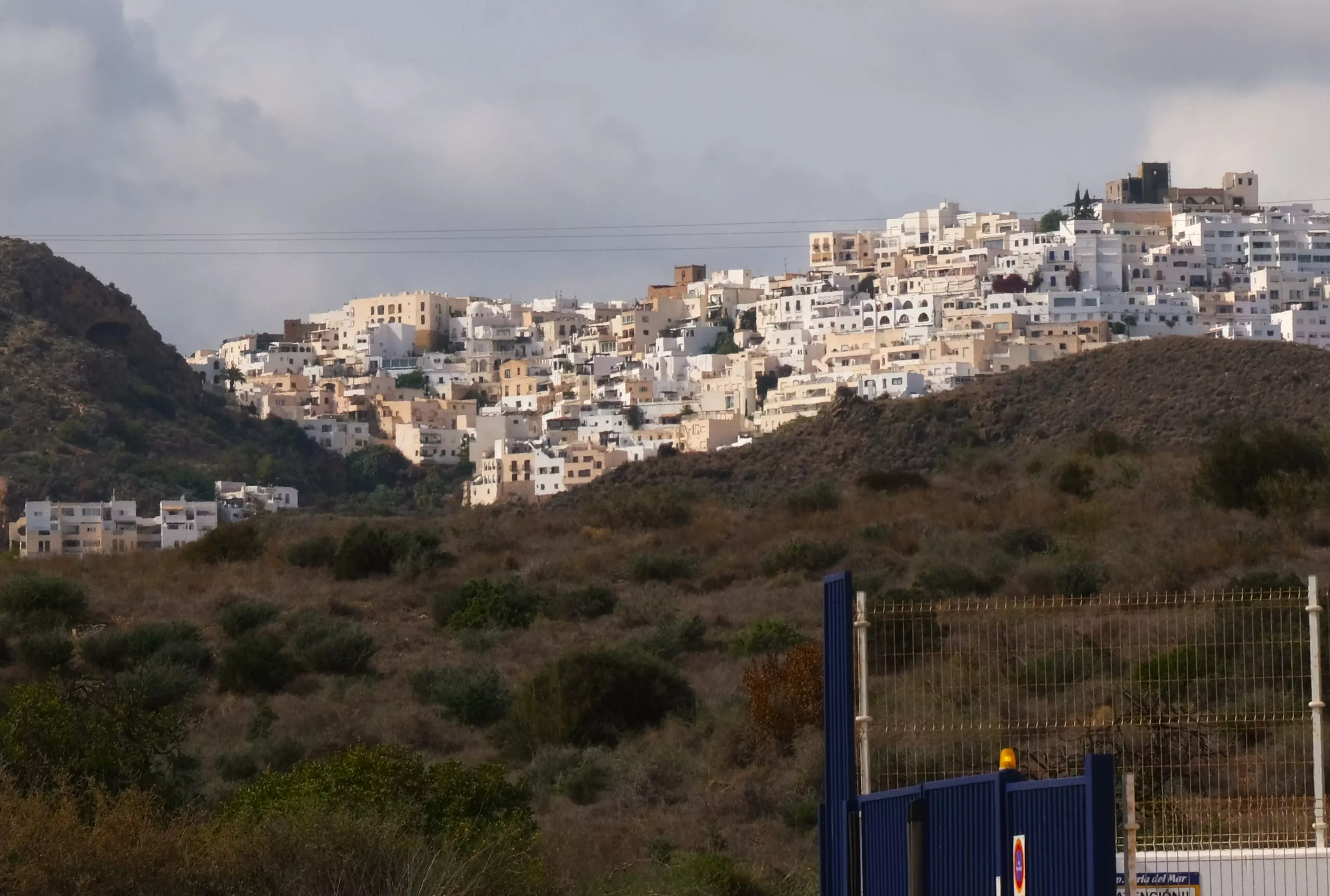
Discover the 14 essential things to see in Mojacar to make the most of your visit to this delightful white village in the province of Almeria.
-
What to see in Zuheros a wonderful white village in Cordoba
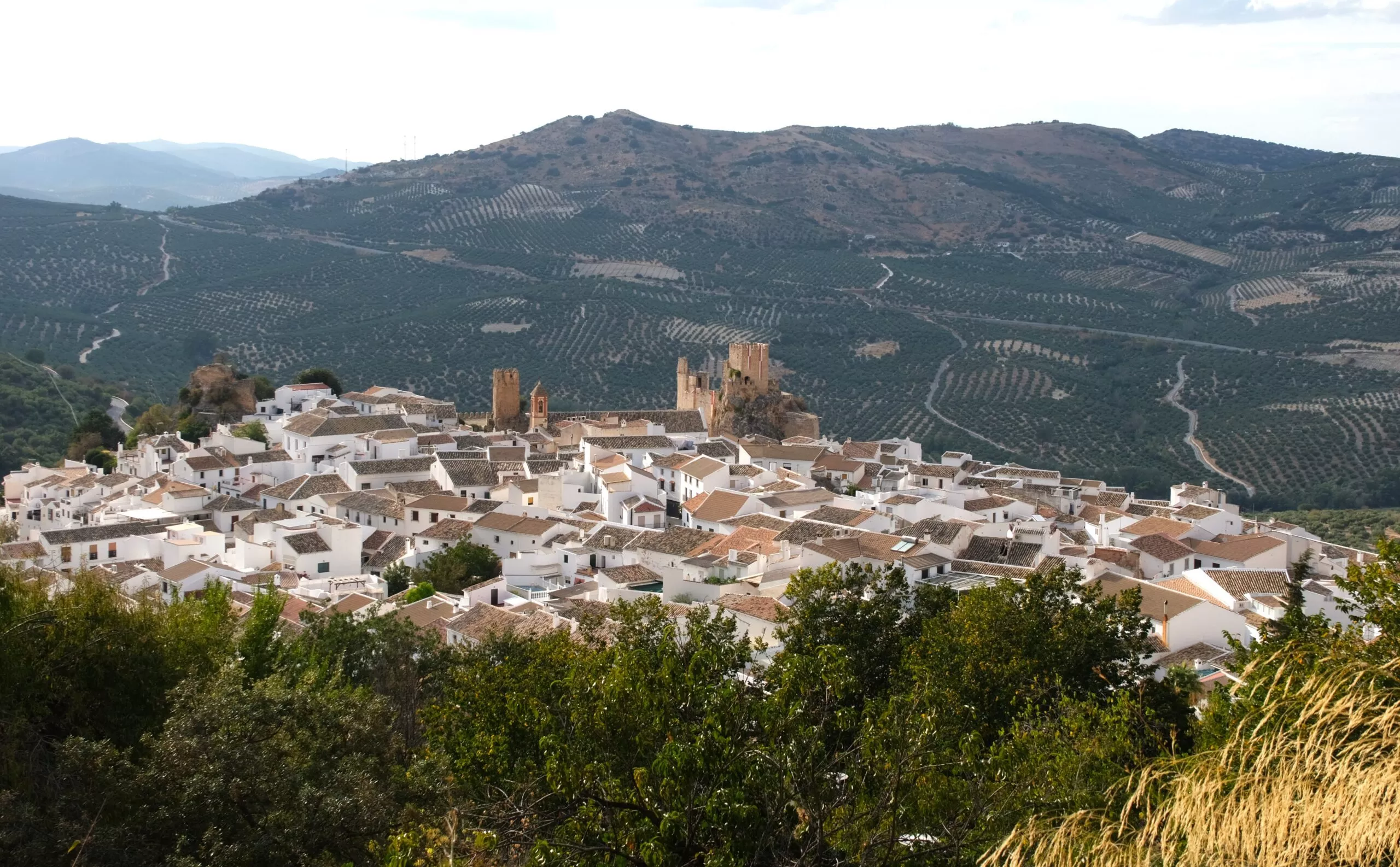
Here are the 16 things to see and do in Zuheros, a wonderful white village in the province of Cordoba, Andalucia.
-
What to see in Montefrio Spain, a wonderful little place

Here’s everything you need to see in Montefrio – Granada province -, a village steeped in history with fabulous views.
